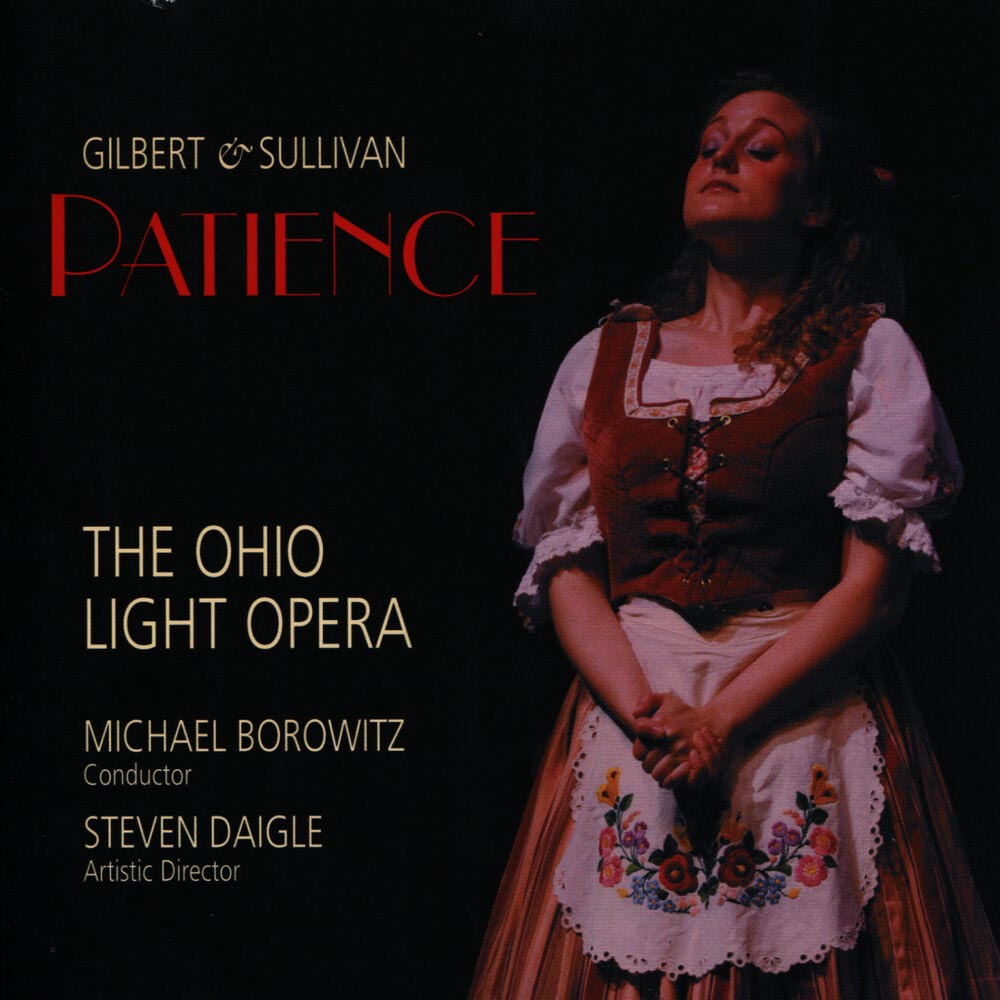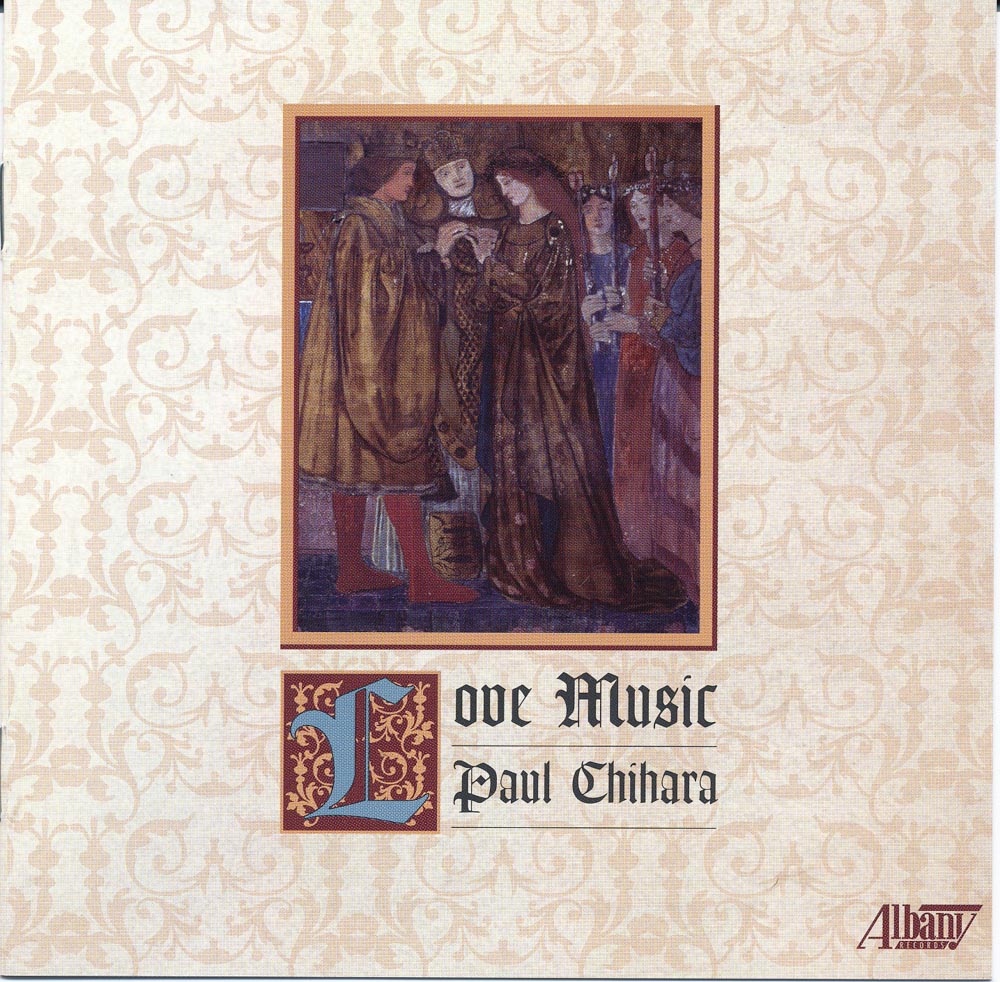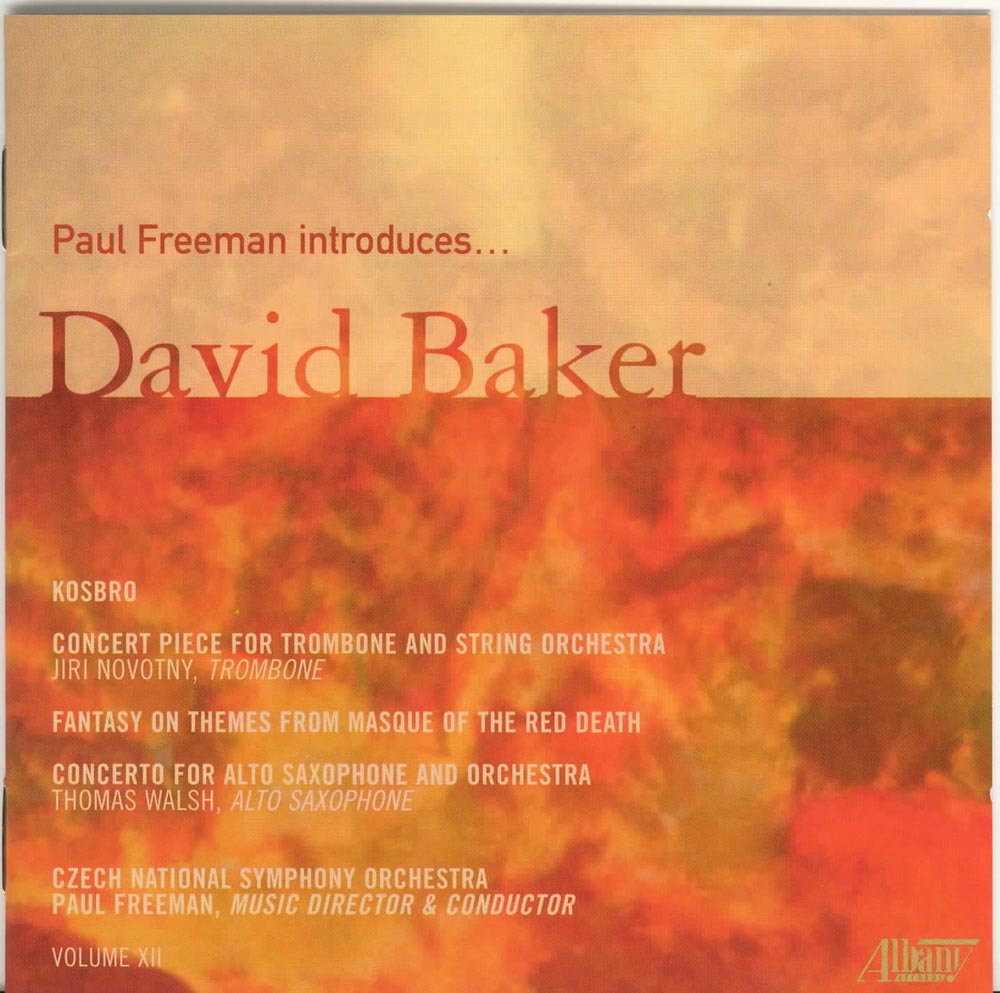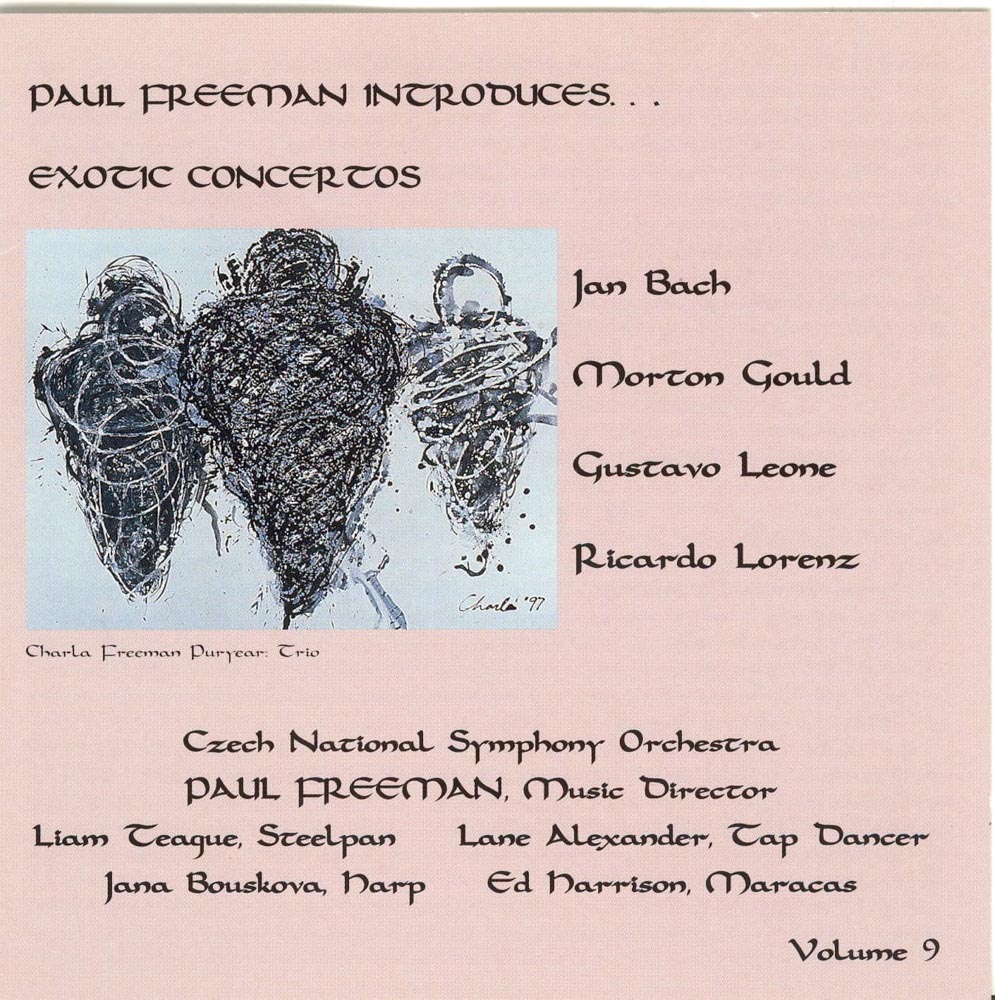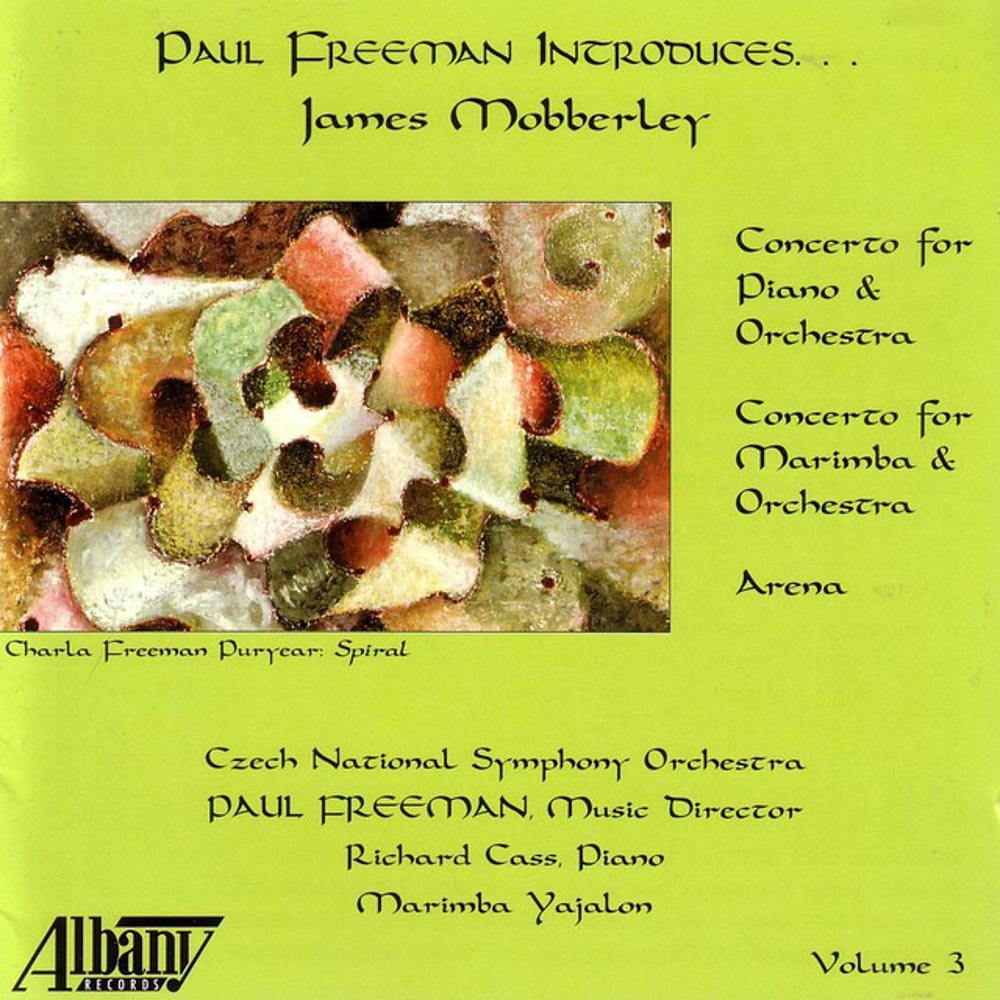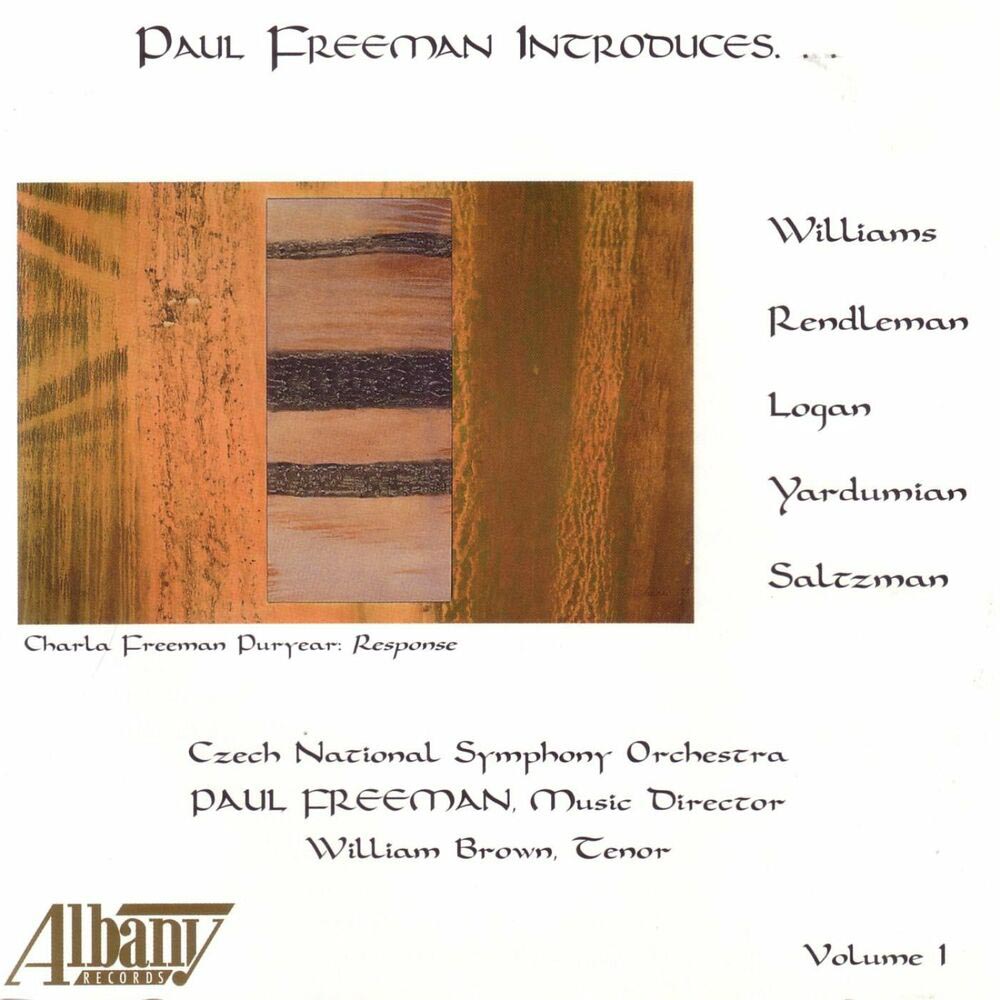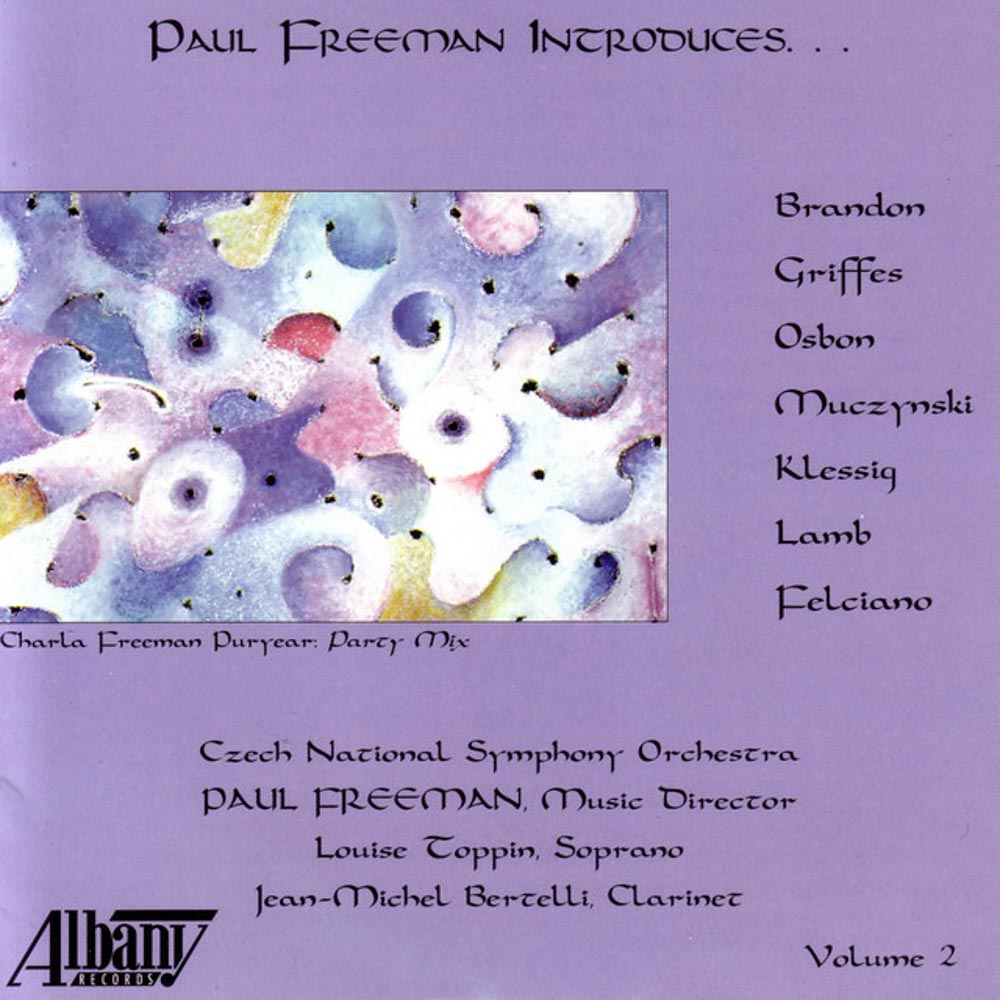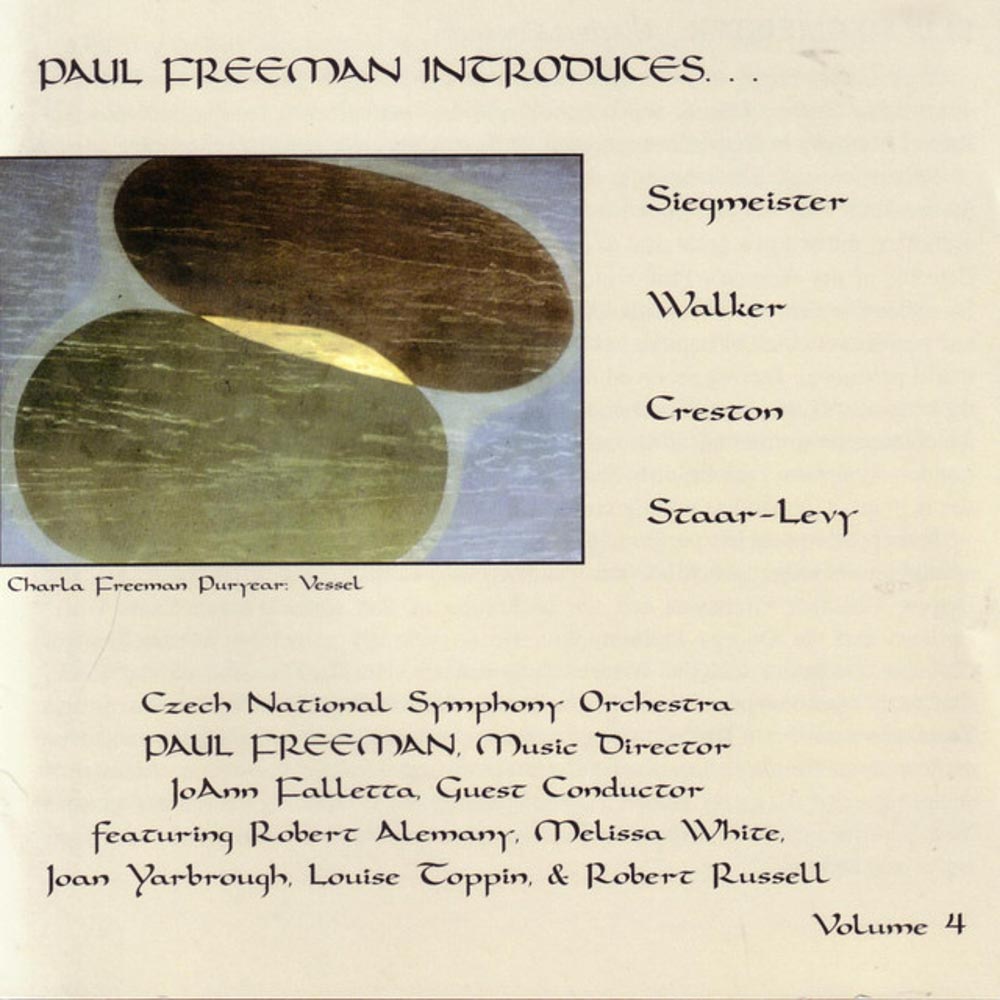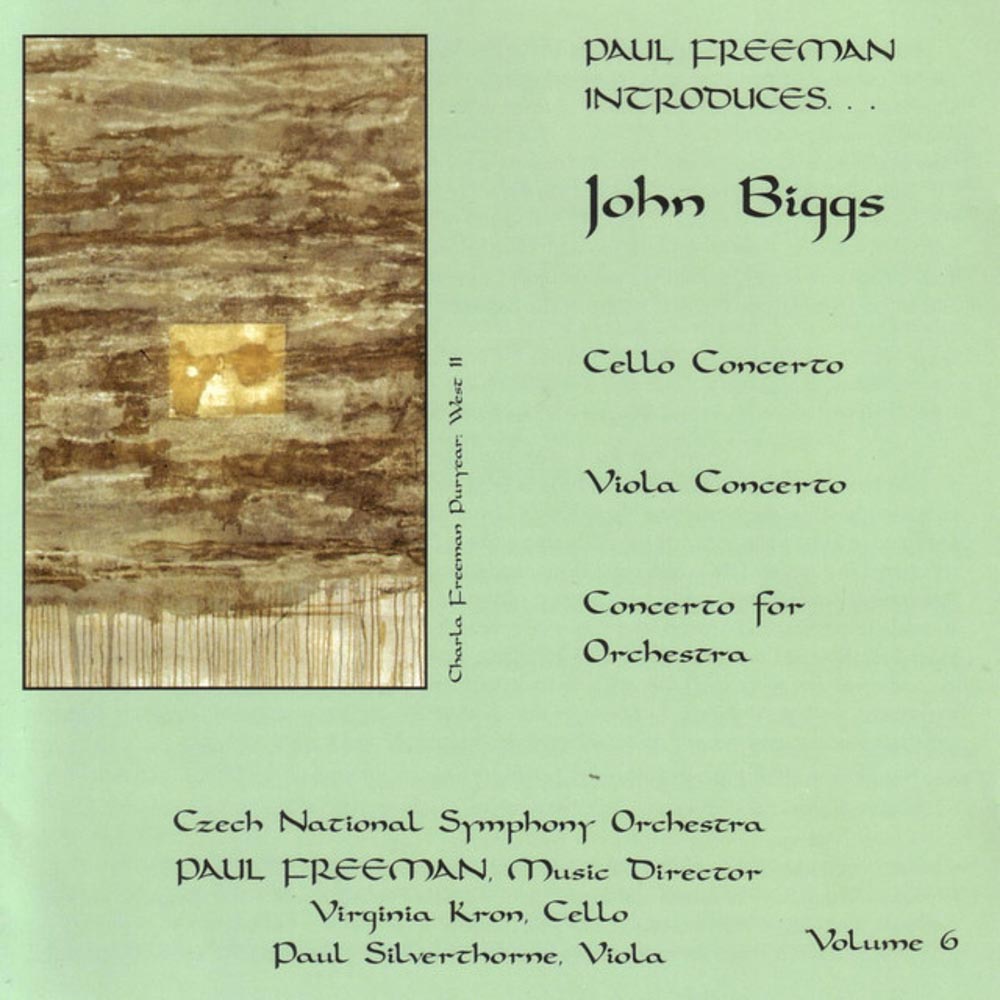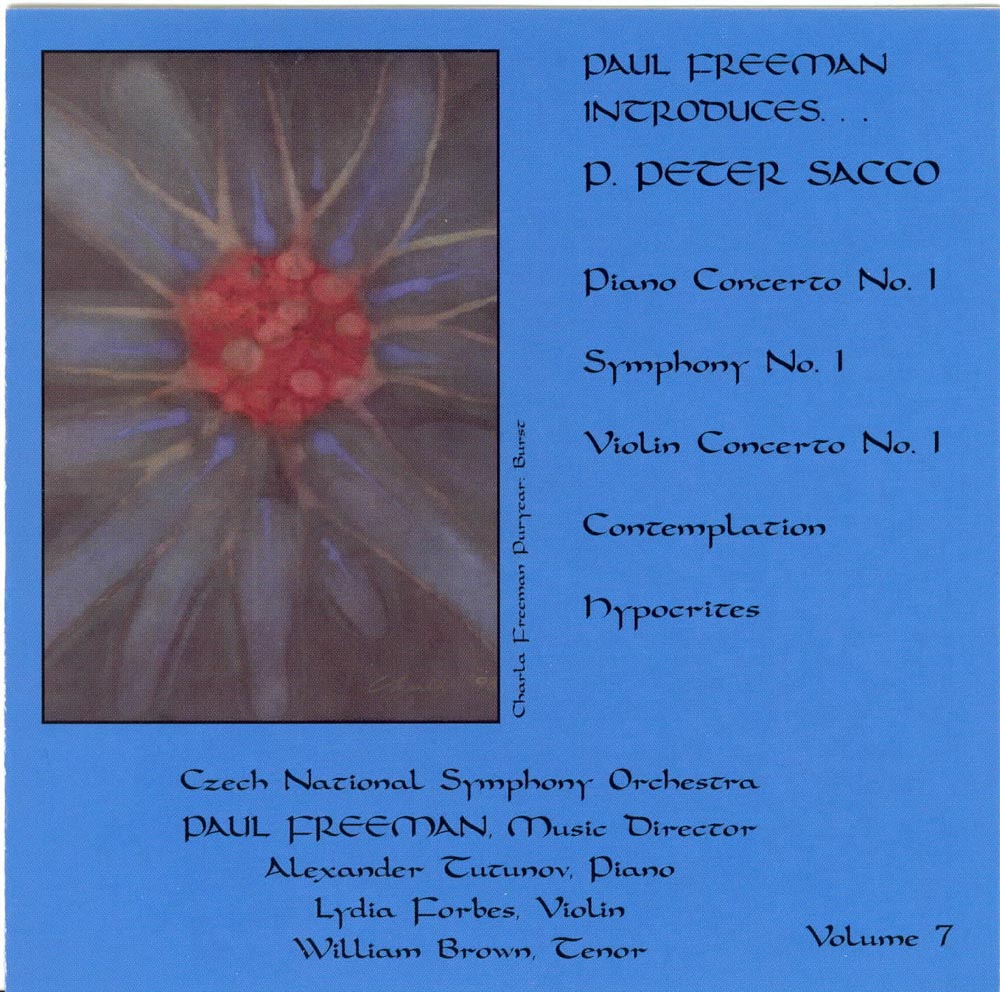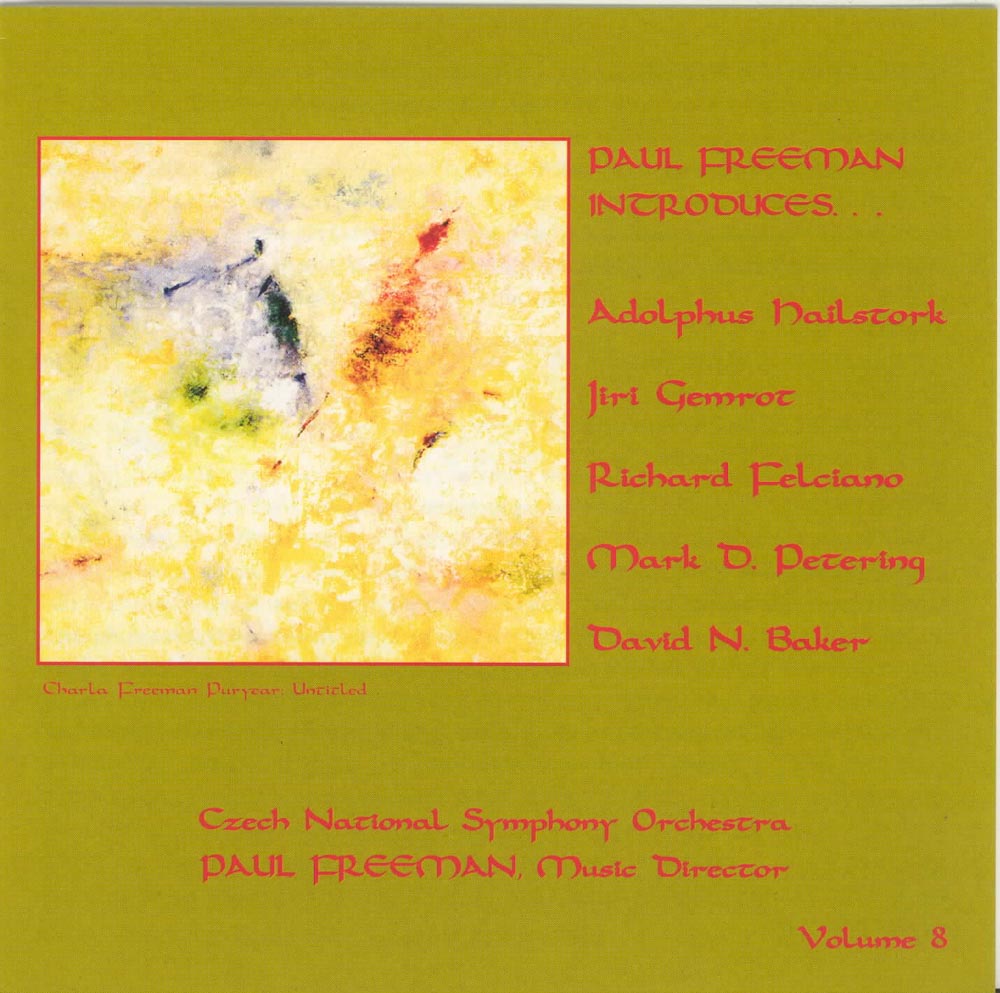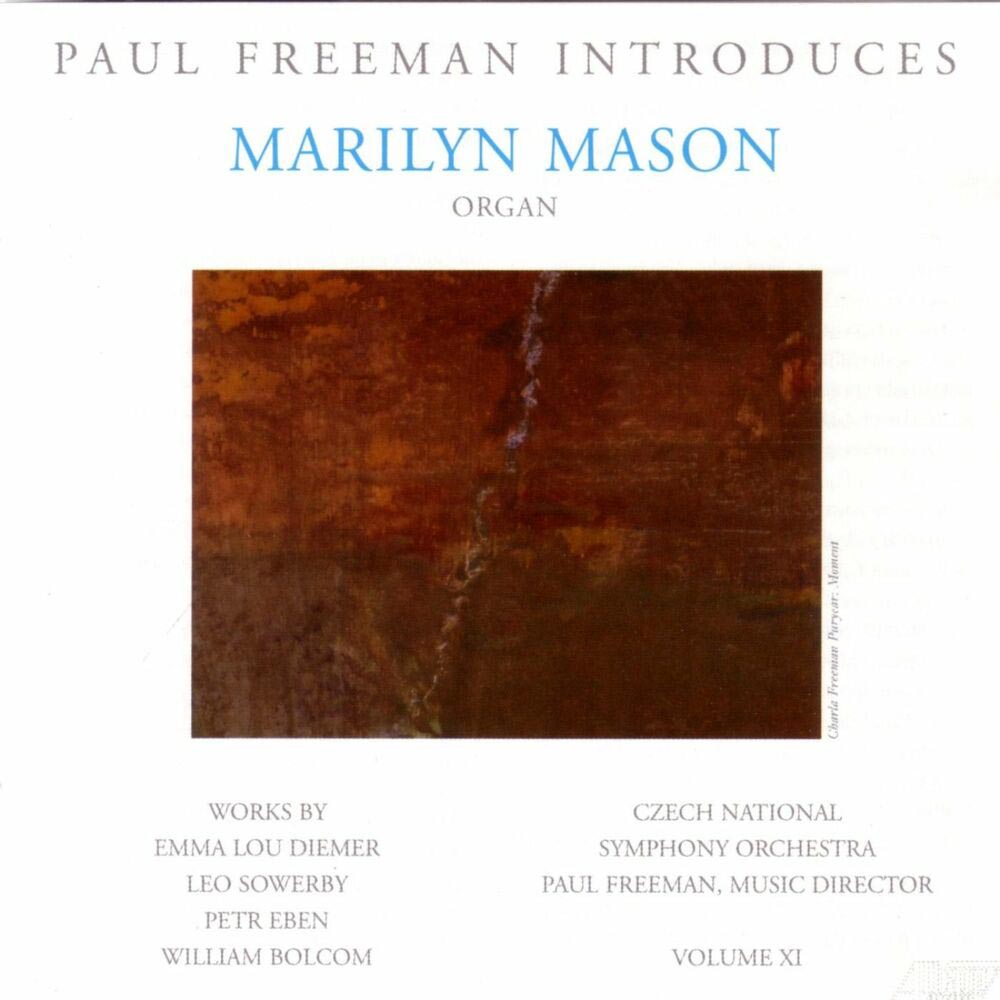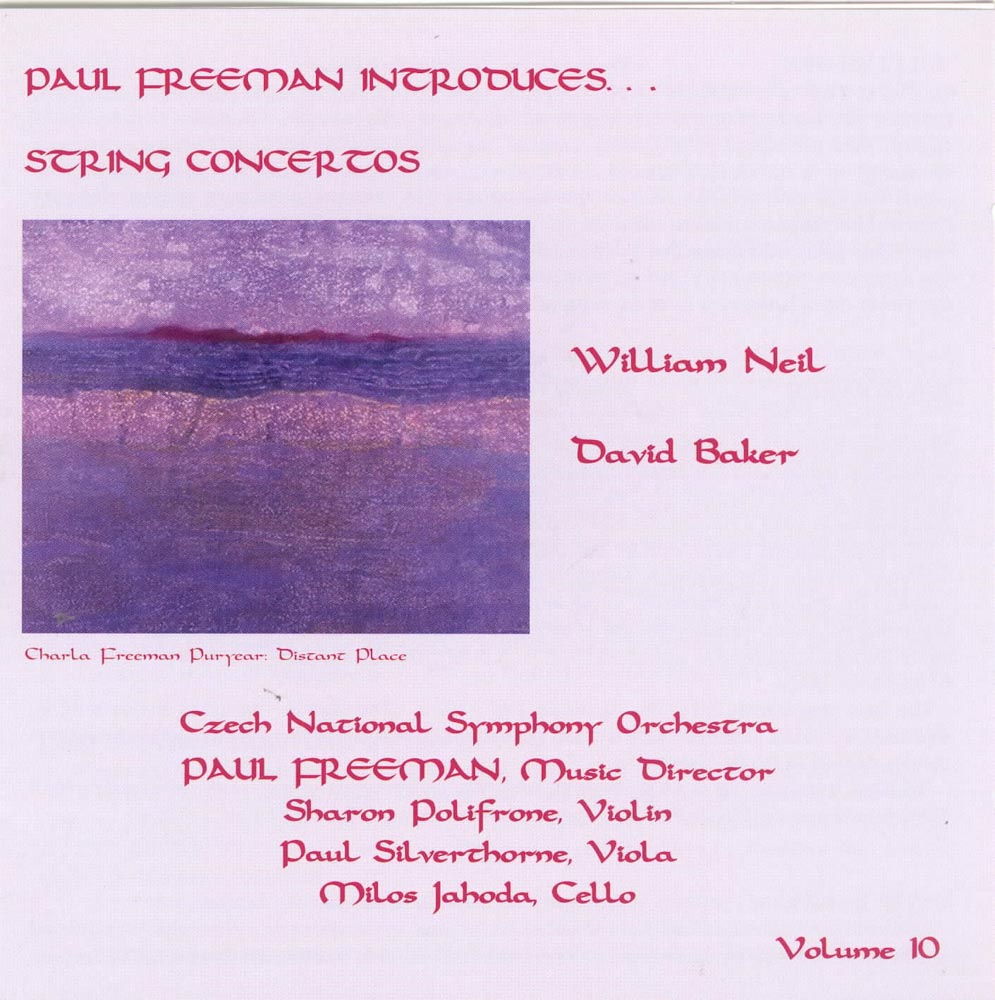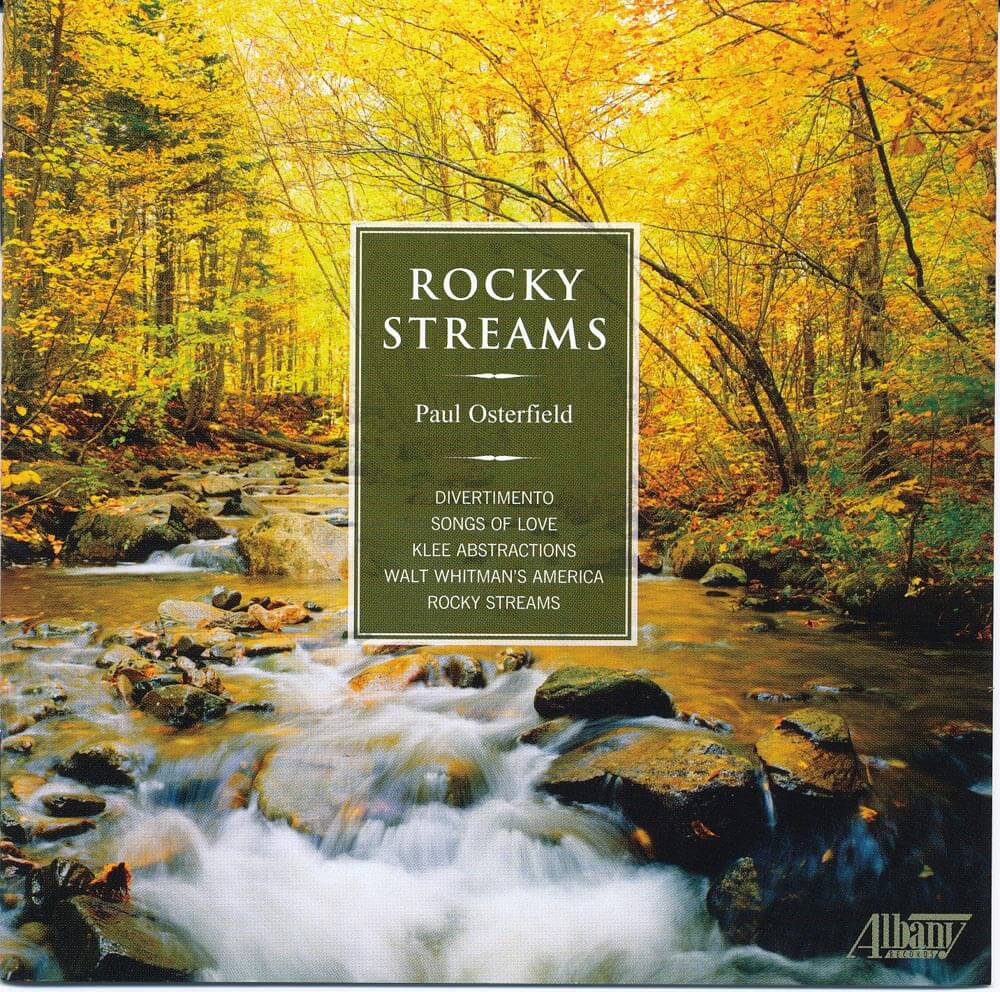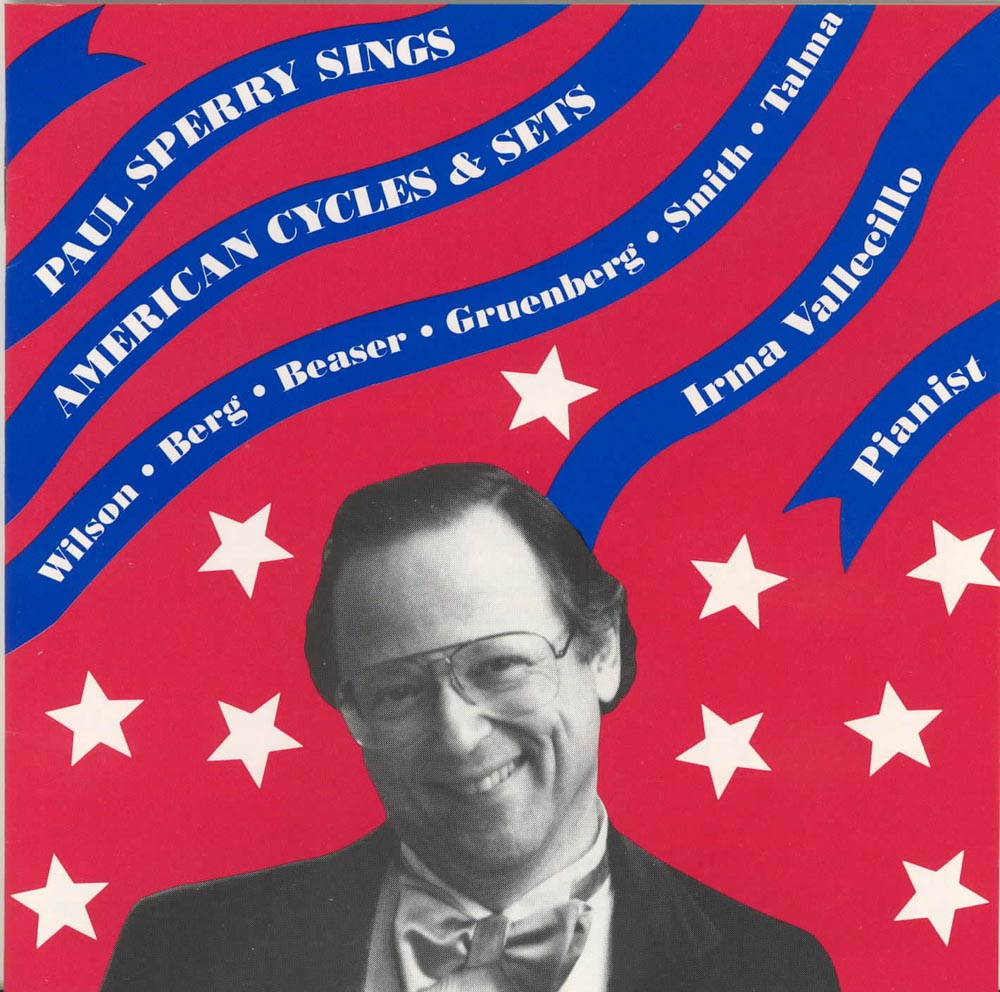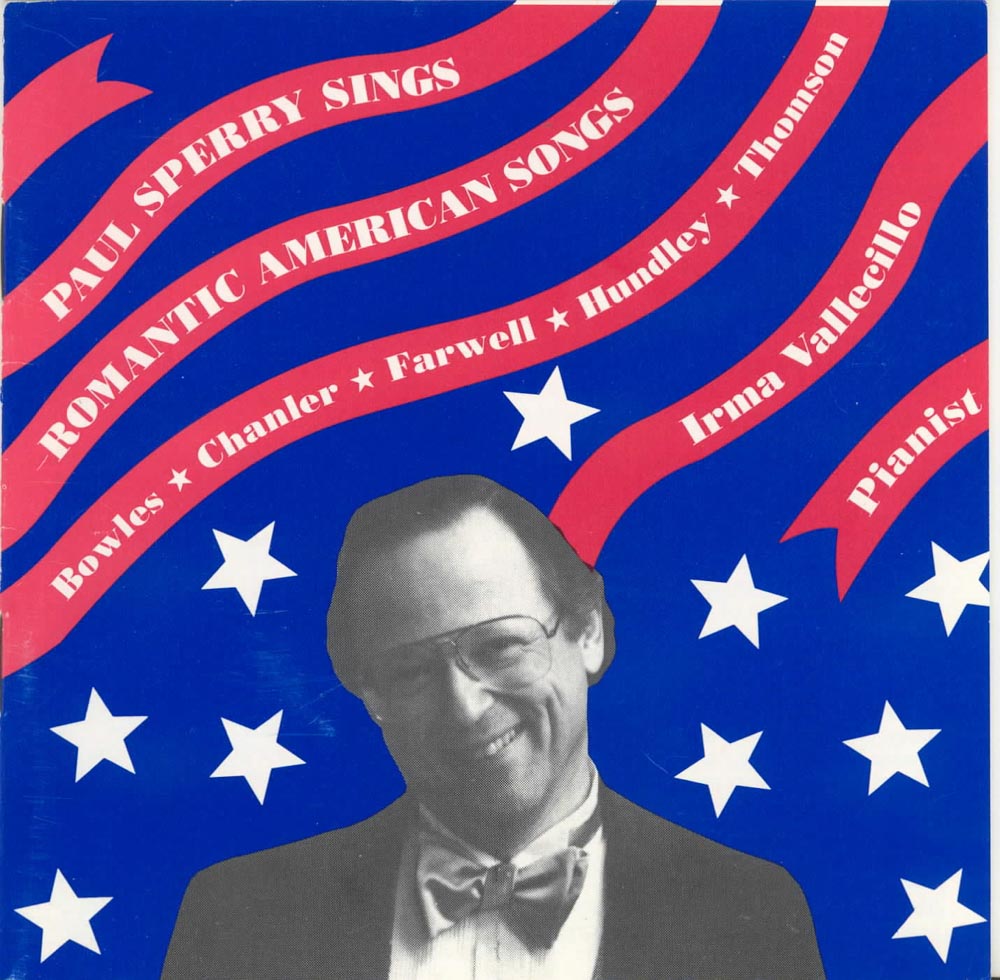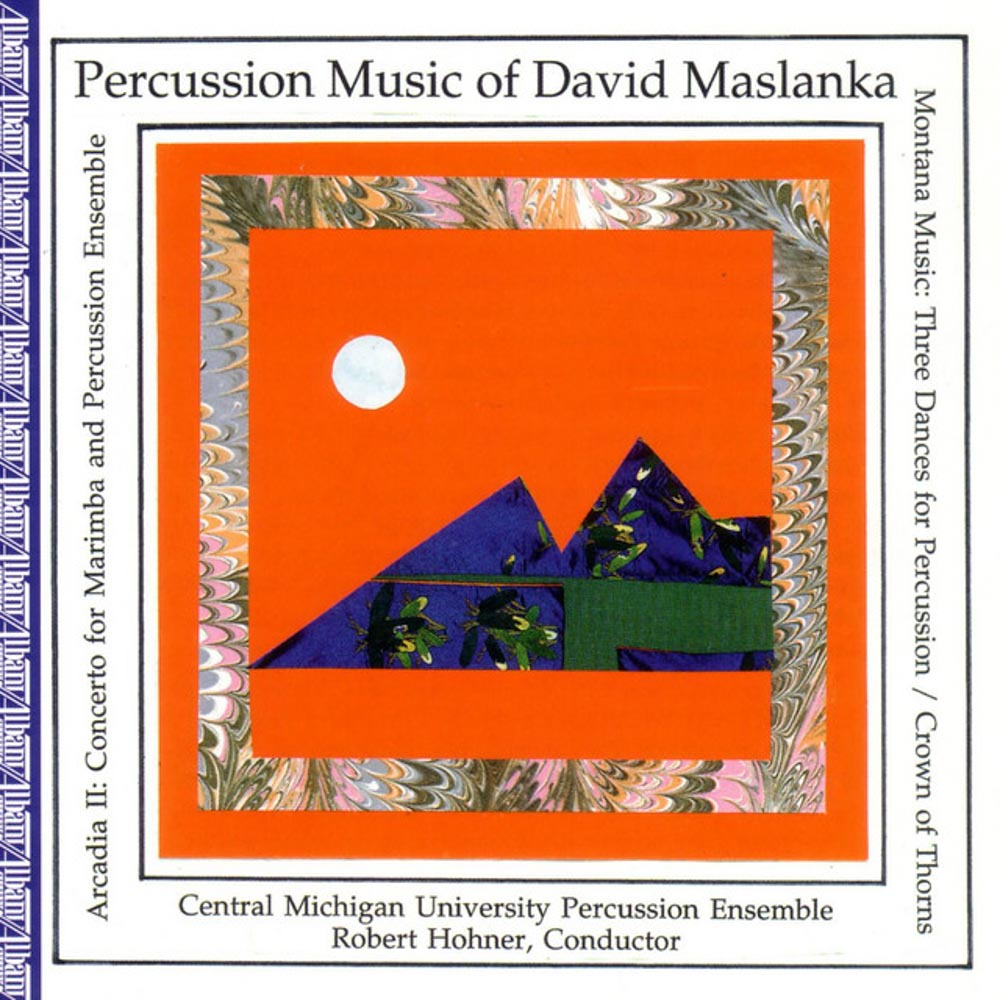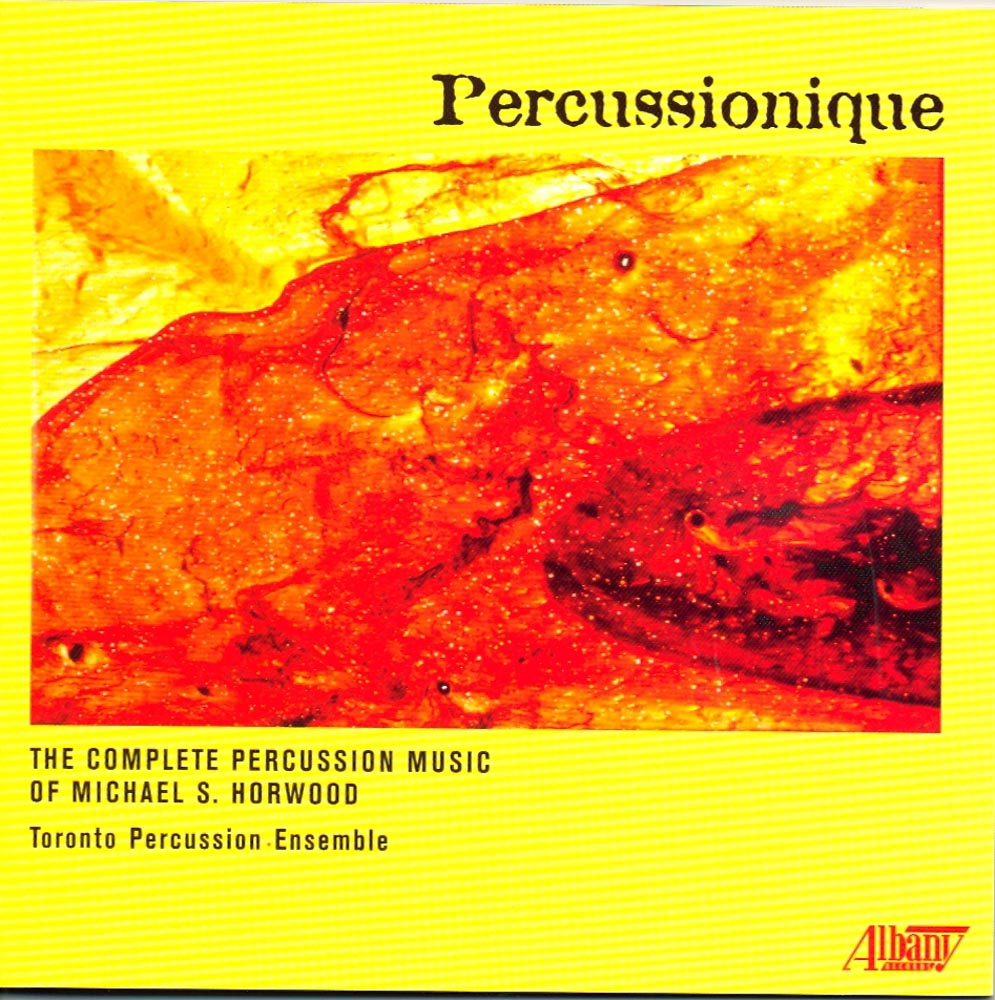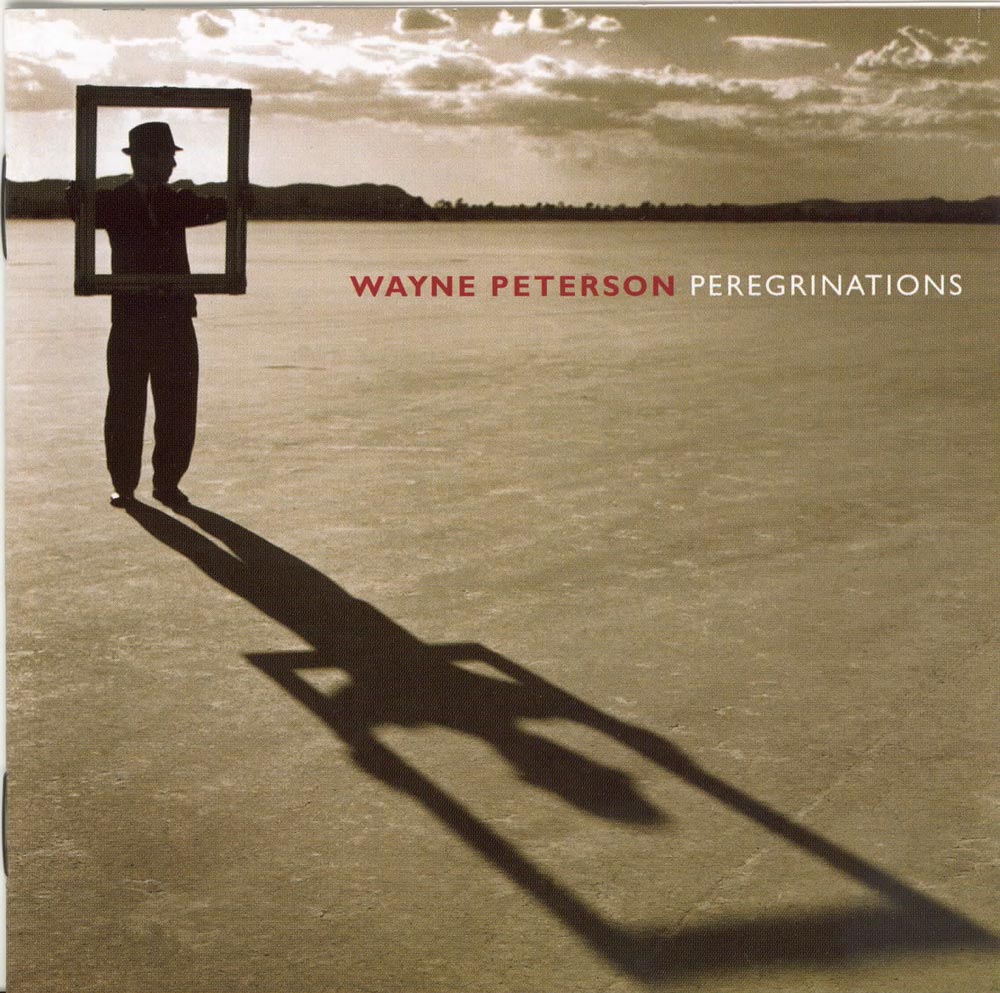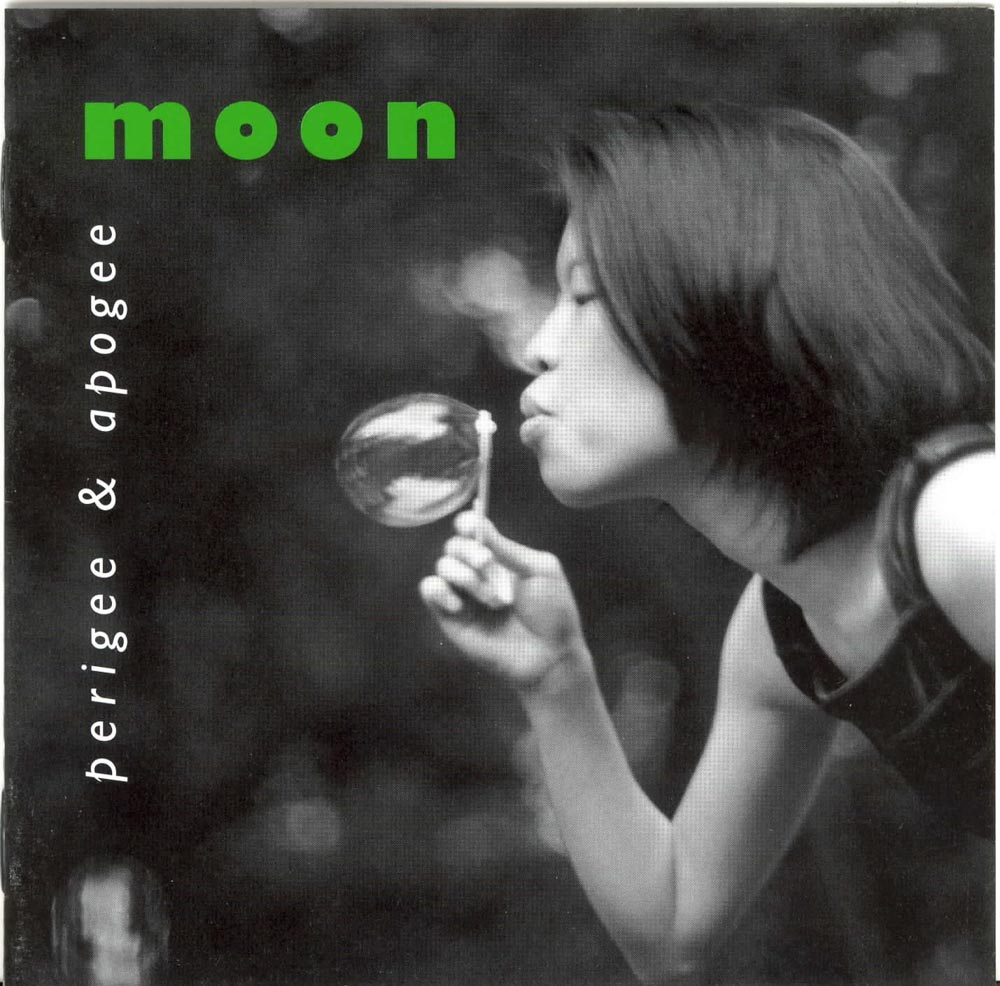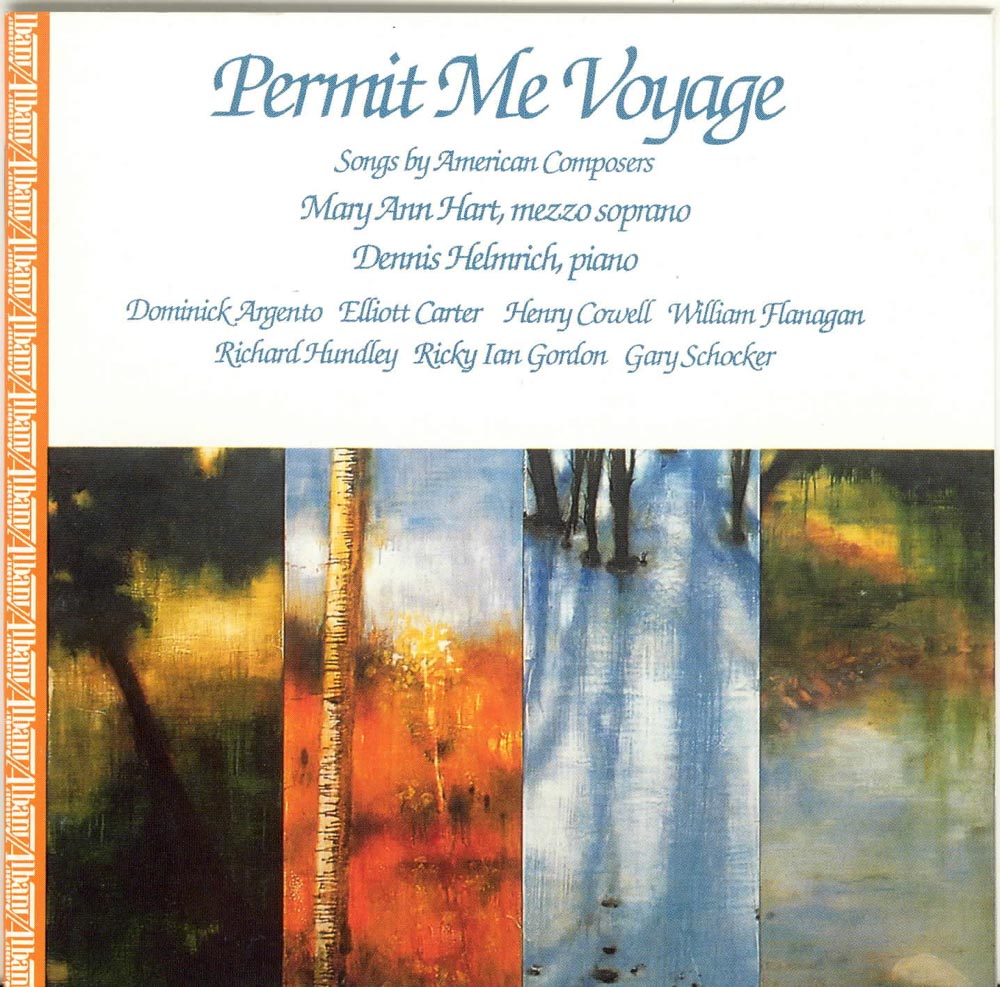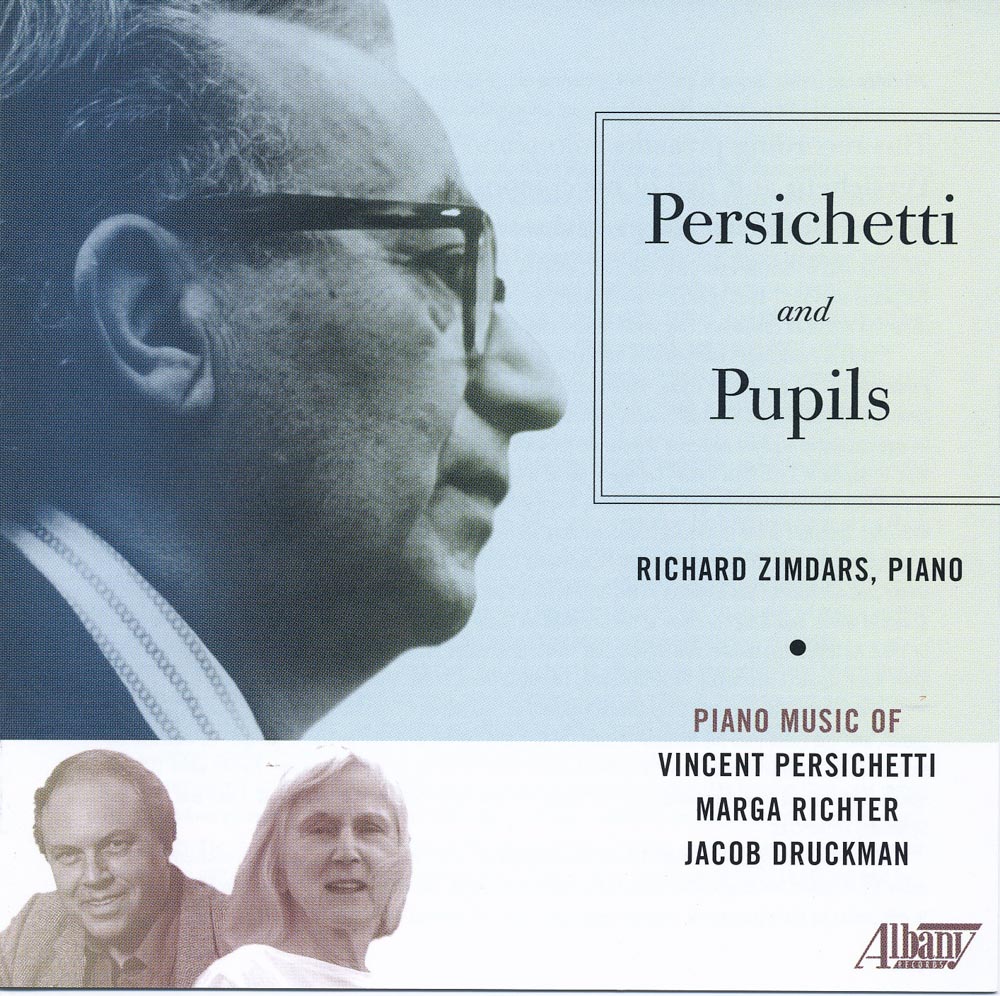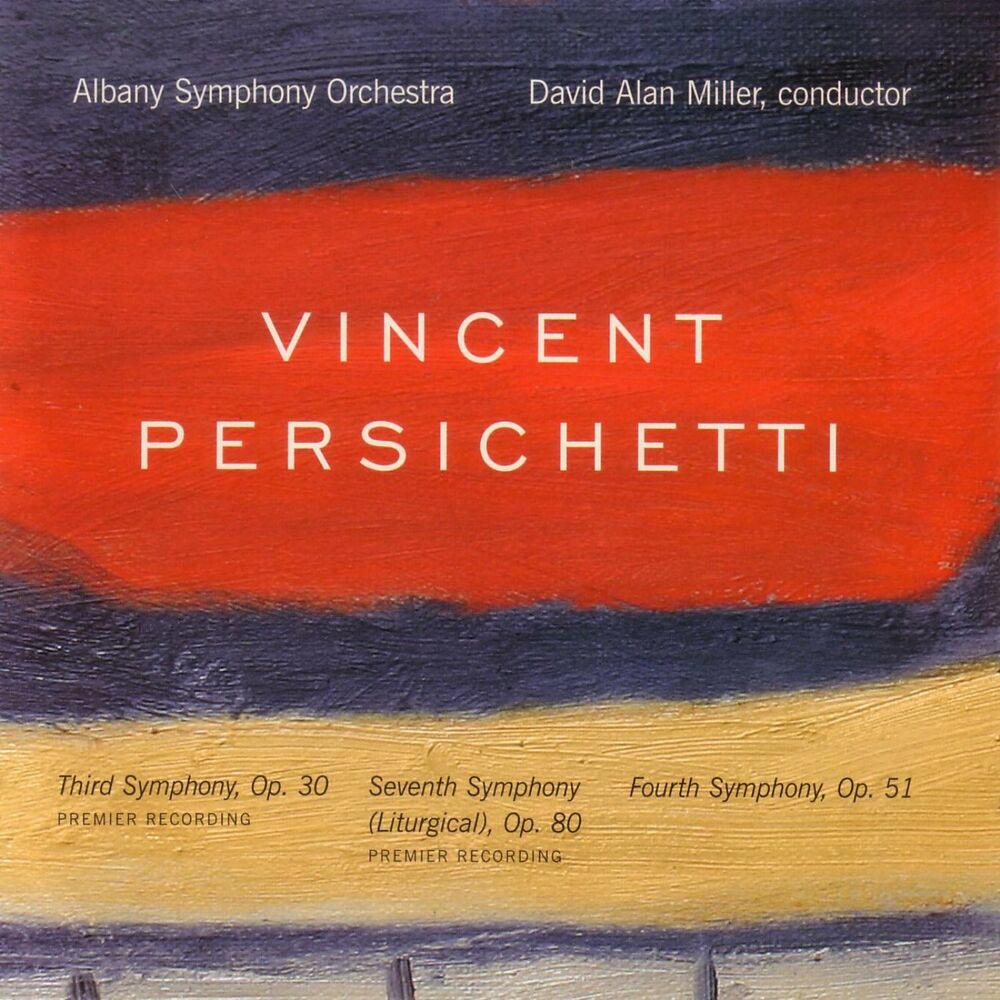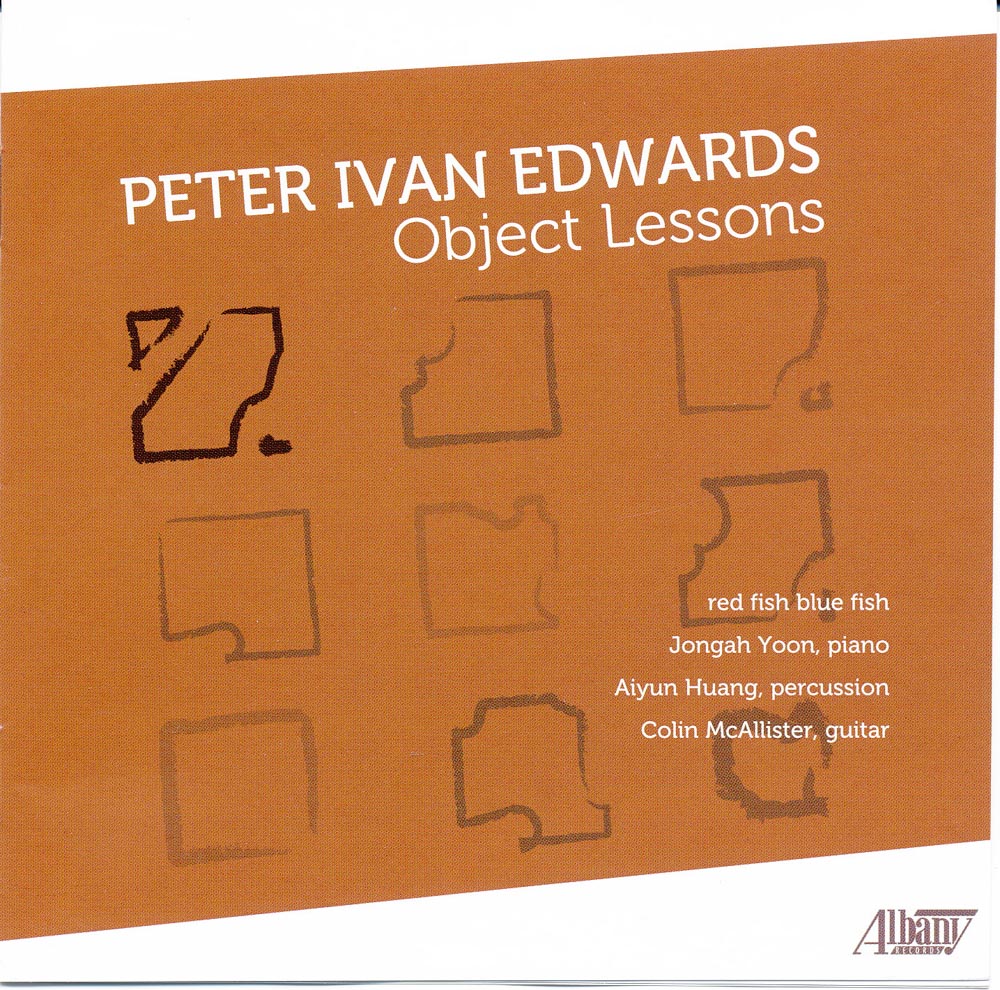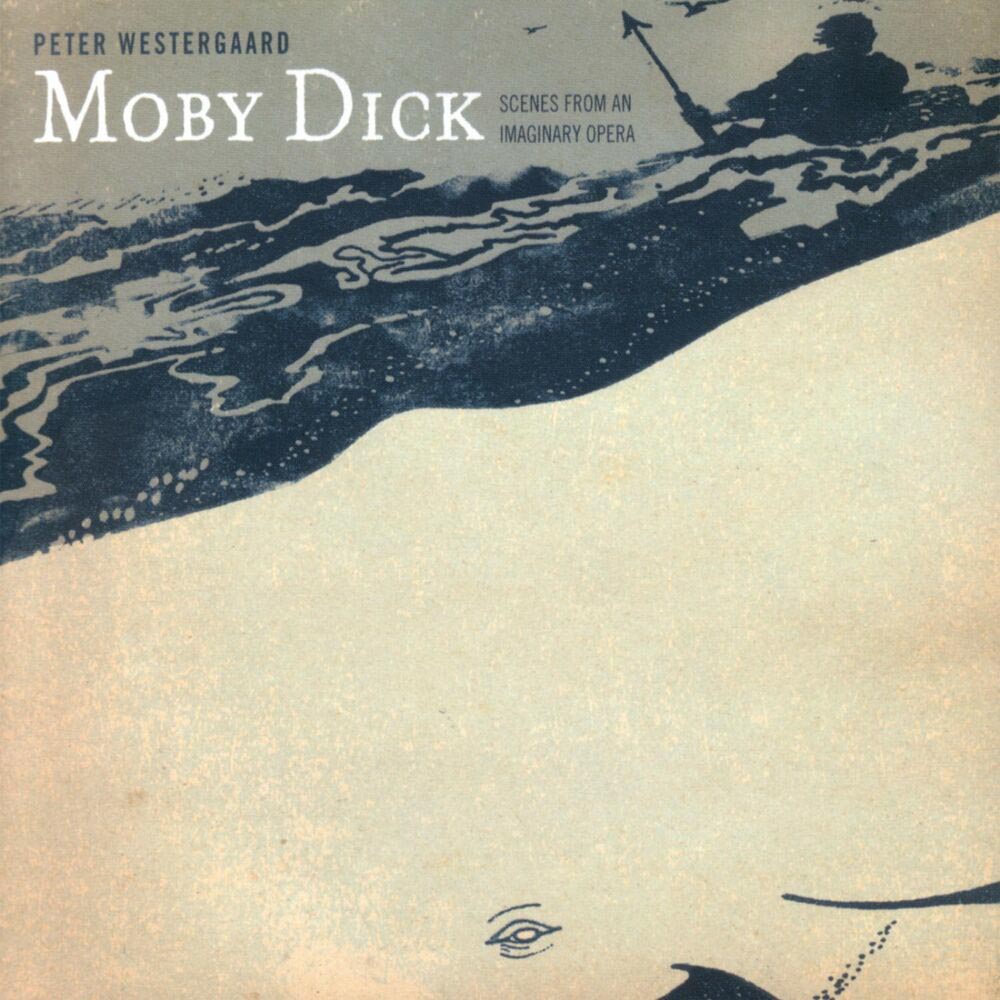Catalog #: TROY0070
Release Date: July 1, 1992InstrumentalMarthanne Verbit comments: "We are now such a long way from the optimism, excitement, intellectual ferment and urge to experiment prevalent at the outset of the nineteenth century that it is difficult to believe all this really existed. The various movements that flourished during this era - impressionism, expressionism, futurism, cubism and neo-classicism, to name just a few - brought about a flood tide of music for the piano, this as diverse as the "movements" that inspired it. Perhaps at this point, we can listen with fresh ears to two of these earliest trend-setters, Cyril Scott and Leo Ornstein."
Catalog #: TROY1716
Release Date: March 1, 2018ChamberAs the music on this recording so aptly demonstrates, Jessica Krash composes with the heart of a chamber musician. Her compositions look for conversations between musical lines, and for the shifts in feeling and outlook as these interactions deepen. Her works, which have wide-ranging emotions and textures, give space for performers to create nuanced shapes and tone colors while they respond to each other. The pieces on this recording are also a dialogue between old and new: old and new music and poetry; old and new musicians; old and new social, philosophical, and emotional issues. Krash's music has been presented in both traditional and experimental settings in Germany, Austria and around the U.S., including the major performance venues and museums in Washington, D.C. She is the recipient of numerous fellowships, awards, and commissions, and has given a series of chamber music masterclasses at Strathmore, and a series of lectures at the Library of Congress, the Kennedy Center, and NIH. This is her second recording for Albany Records.
Catalog #: TROY1241-42
Release Date: December 1, 2010OperaGilbert & Sullivan's hilarious and tuneful 1881 spoof of Oscar Wilde and the Pre-Raphaelite movement is presented with complete music and dialog by the Ohio Light Opera. Patience was the sixth of the 14 Gilbert & Sullivan collaborations. It played for 850 performances, moving to the Savoy Theatre, where it was hailed as the first theatrical production to be lit entirely by electric light.
Catalog #: TROY1290
Release Date: September 1, 2011ChamberComposer Paul Chihara comments that “This cd is a labor of love. It represents my activities in concert, ballet, movies and Broadway — and is unabashedly personal and romantic.” One can think of Paul Chihara as several different composers: the Chihara of exquisite instrumental color; the Chihara of the theatre; and the Chihara of American popular music. Premiering throughout the U.S. and Europe for more than five decades, Chihara’s prize-winning concert works have earned him both domestic and international recognition. He was composer-in-residence for the San Francisco Ballet, the Los Angeles Chamber Orchestra and the Marlboro Festival. He has composed scores for more than 100 motion pictures and television series. Active on Broadway, he was musical consultant and arranger for Sophisticated Ladies.
Catalog #: TROY1504
Release Date: July 1, 2014VocalPaul Creston (1906-1985) was one of America's most important and influential composers of the mid-20th century. He earned ample attention for his orchestral compositions, but his songs many of which are unpublished remain little known. This recording offers a wide introduction to Creston's vocal music, bringing to light pieces for solo voice that have languished in obscurity. Soprano Rebecca Sherburn is an active chamber musician, having been featured by the Los Angeles Philharmonic New Music Group and the New York New Music Group. Her scholarly work has been published by the NATS Journal of Singing and the ACDA Choral Journal. A graduate of the University of Southern California, Ms. Sherburn is on the faculty at Chapman University. Prior to this appointment she was at the University of Missouri Kansas City where she received an excellence in teaching award.
Catalog #: TROY0843
Release Date: June 1, 2006OrchestralThis is volume 12 of the ongoing series Paul Freeman Introduces... where one of today's most innovative conductors presents exciting and fascinating new music for orchestra. Throughout this series he has presented several works by the outstanding African-American composer David Nathaniel Baker (a previous all-Baker disc is on TROY377). A native of Indianapolis, Baker holds the position of Distinguished Professor of Music and Chairman of the Jazz Department at the Indiana University School of Music. Among his teachers have been J.J. Johnson, Bobby Brookmeyer, Janos Starker, William Russo, Bernard Heiden and Gunther Schuller. Not surprising, Baker is equally at home in both classical and jazz performing and composing. He is highly prolific, with more than 2000 works to his credits and over 500 commissions from renowned individuals and ensembles. Kosbro (an acronym for "Keep on Steppin,' Brothers") is a perfect example of his style: propulsive, jazzy, rich in harmony and hard-hitting. His music can also be highly lyrical and memorably melodic, as in the "third-stream" Alto Saxophone Concerto. This is truly dynamic American music.
Catalog #: TROY0521
Release Date: September 1, 2002OrchestralThis recording brings together some wonderful concertos for orchestra and unusual instruments, most of which are first recordings. The solo part of Jan Bach's Steelpan Concerto was actually written for soprano pan, a steel instrument that usually plays the primary part in the Caribbean steel bands. The work was composed in 1994 for Liam Teague, a young musician from Trinidad whose musicianship inspired the work. Morton Gould's Concerto for Tap Dancer and Orchestra, written in 1952, brings together Gould's flare for Americana and his passion for dance. Inspired by the percussive quality of the tap medium, Gould's concerto is typically inventive in mixing musical tradition with modern American culture. Leone's Harp Concerto was commissioned and premiered in 1994 by Concertante di Chicago with Elizabeth Cifani as soloist. Like all his music, it is influenced by the popular music of Latin America where he grew up. Ricardo Lorenz was born in Maracaibo, Venezuela in 1961 and is considered one of the most prominent Venezuelan composers of his generation. Playing the maracas in Venezuela has developed into a highly virtuosic art form that is considered by connoisseurs as one of the world's most sophisticated vernacular percussion techniques. One of these connoisseurs is Chicago's Lyric Opera percussionist Ed Harrison, for whom the concerto was composed. Harrison learned to play the maracas in the typical Venezuelan style during his tenure as percussionist of the Orquesta Filarmonica de Caracas.
Catalog #: TROY0335
Release Date: July 1, 1999OrchestralBorn in Des Moines, Iowa, James Mobberley was raised in Pennsylvania. He earned his Master's Degree at the University of North Carolina and his Doctorate at the Cleveland Institute of Music where he studied composition with Donald Erb and Eugene O'Brien. He began teaching composition and electronic music in 1981, and since 1983 has been on the composition faculty of the Conservatory of Music at the University of Missouri-Kansas City. In 1991, he was named the Kansas City Symphony's first Composer-in-Residence. His Piano Concerto was composed for Richard Cass and the Kansas City Symphony and was premiered the same year with William McGlaughlin conducting. The Concerto for Marimba (eight hands) and Orchestra was written for Laurence Kaptain and Marimba Yajalon, an ensemble of four percussionists who perform on an authentic folk instrument indigenous to Chiapas, the southernmost state of Mexico. The most unusual and characteristic quality of this instrument is the buzzing sound created by the kazoo-like membrane at the bottom of each resonator, creating a sound unlike that of any other mallet instrument. The composer writes about Arena : "Arena is the result of approximately two years of collaboration between choreographer Todd Bolender and me. Our discussions ranged from topics on spirituality to politics, from the poetry of T.S. Eliot to the paintings of Anselm Kieffer, from jazz to Stravinsky, and from George Balanchine to Martha Graham. Arena evolved slowly from our discussions into reality. The result is a work which suggests rather than describes, which evokes emotions rather than portrays actions, and which mixes despair and redemption in equal measure through the use of cyclical forms."
Catalog #: TROY0312
Release Date: November 1, 1998OrchestralJames Kimo Williams is a versatile composer who has written both serious and commercial works. He is a faculty member of Columbia College in Chicago and writes the following: "Fanfare for Life was commissioned by AT&T and premiered May 6, 1994 by the Chicago Sinfonietta at Orchestra Hall in Chicago under the baton of Paul Freeman. I composed this work in direct response to the outgrowth of gang violence during that same year." Richard J. Rendleman, Jr. was born in 1949 in Salisbury, North Carolina and holds a Ph.D. in Business Administration from the University of North Carolina at Chapel Hill where he currently serves as Professor of Finance. At age 32, he began studying with the Pulitzer Prize winning composer, Robert Ward. As a result has written a number of works for piano, chorus, Chamber ensemble and Orchestra. "October 9, 1943 serves as the second movement of my First Symphony, completed in 1997. The music is based on a poem of the same title by my grandfather's cousin, Margaret Proctor Wood. The Chamber version of Runagate, Runagate was first performed at the National Black Arts Festival in Atlanta in 1990. Subsequently, the Orchestral version was premiered by the Savannah Symphony in 1994 with William Brown for whom the work was written. Wendel Logan is on the faculty of Oberlin College. "The text and title of my composition are based on Robert Hayden's collage poem "Runagate, Runagate," which was taken from the collection Angle of Ascent (1975). Richard Yardumian's (1917-1985) Chorale-Prelude Veni, Sancte Spiritus was premiered by Eugene Ormandy and the Philadelphia Orchestra on April 3, 1959 and performed over 100 times during his tenure. Peter Saltzman has written extensively for dance and theatre groups as well as for Orchestra. He is very active in the Chicago musical scene and writes the following: "I wrote Walls during a three week period in December, 1995 and January, 1996. It was commissioned by Kevin Iega Jeff, choreographer of the Dallas Black Dance Theatre, which premiered a synthesized version of the work in February, 1996."
Catalog #: TROY0322
Release Date: March 1, 1999OrchestralSy Brandon is Professor of Music at Pennsylvania's Millersville University. His Celebration Overture was composed in 1995 in honor of WITF-FM's 25th anniversary and was selected as the winning composition in a contest held by the station. David Osbon was born in Reading, England in 1963 and studied composition in Great Britain. He received his Ph.D. from the University of Pennsylvania. Composed as a concert overture, Liberty is a deliberately ironic and ambiguous title for a work that reflects the composer's mixed reactions to life in Philadelphia. Celebrating his 70th birthday this month, Robert Muczynski grew up in Chicago and studied composition with Alexander Tcherepnin. He served as Professor at the University of Arizona for many years and now resides in Tucson. Written at the suggestion of Howard Mitchell, Symphonic Dialogues is dedicated to him and the National Symphony Orchestra. Richard Klessig studied jazz piano in New York City and graduated from the Berklee College in 1992. Meditation from Don Juan is taken from the third act of his 1996 ballet Don Juan which was composed for the twenty-fifth anniversary season of Ballet Oklahoma. Marvin Lamb is the Dean of the College of Fine Arts at the University of Oklahoma at Norman. A native of California, Richard Felciano is a Professor of Music at the University of California, Berkeley, where he is also the founder of the Center for New Music and Audio Technologies. This disc features spoken introductions to the music by Mr. Freeman and as with the first disc in this series, the performances of this music are well rehearsed and recorded.
Catalog #: TROY0356
Release Date: November 1, 1999OrchestralElie Siegmeister received his B.A. from Columbia University. He studied with Wallingford Riegger, Nadia Boulanger and at Juilliard. The Clarinet Concerto, a delightful piece, reflects the composer's involvement with Broadway theatre and his interest in a type of personalized jazz. Gwyneth Walker is a rarity among composers, in that she supports herself entirely by her writing. Her catalog contains over 100 commissioned works. Her artistic and personal goal is to provide music "where it is needed and will be enjoyed." She lives on the Brainstorm dairy farm in Braintree, Vermont, surrounded by more than 200 Holstein cows. Paul Creston's Fantasy for Piano and Orchestra was completed in September, 1942 and was first performed by the High School of Music and Art Orchestra at Carnegie Hall. This is its first recording. Just an Accident? was first written as a Chamber work, commissioned by the Festival of New Music in Wiener Neustadt, Austria for the Webern Centennial in 1983. As a symphonic work for full orchestra it was premiered in America in 1986 with Philippe Entremont and the New Orleans Philharmonic.
Catalog #: TROY0394
Release Date: October 1, 2000OrchestralJohn Biggs was born in Los Angeles. He received his Master's Degree in composition from the University of California at Los Angeles. He also studied in Belgium. His teachers were Roy Harris, Lukas Foss, Ingolf Dahl, Flor Peeters and Halsey Stevens. As an educator, he has taught at Los Angeles City College, UCLA, UC Berkeley and served as composer-in-residence to six colleges in Kansas under a grant from the Department of Health, Education and Welfare. As a performer he founded the John Biggs Consort, which toured internationally under Columbia Artists Management, specializing in medieval, renaissance and 20th century music. Paul Freeman writes: "I was particularly struck by the similarity of approach between Biggs and that of the Baroque era. His feel for tone color, Orchestration, counterpoint and compositional form in general is indeed very strong. The unusually cheerful brightness of the cello concerto is a good contrast to the more austere and penetrating viola concerto."
Catalog #: TROY0410
Release Date: February 1, 2001OrchestralP. Peter Sacco was born into an intensely musical family in Albion, N.Y. A long line of professional and amateur singers and instrumentalists provided a diverse and supportive context in which Sacco states: "I never thought of doing anything but music. I started at age four on the piano and haven't stopped since." He attended the Eastman Preparatory School of Music in Rochester where he studied theory, piano and voice. He was drafted during the Korean conflict and stationed in Frankfurt, Germany. There he studied at the Frankfurt School of Music. In 1953, he went back to Eastman, from which he graduated. From 1959 to 1981, he served on the faculty of San Francisco State University. Today he continues to teach, perform, and compose in Ashland, Oregon.
Catalog #: TROY0499
Release Date: May 1, 2002OrchestralAdolphus Hailstork composed his Sonata da Chiesa (church sonata) on commission from the Thomas Jefferson High School for Science and Technology in Alexandria, Virginia for its string orchestra. It was premiered there in 1992. The Sonata da Chiesa reflects the composer's fascination with cathedrals, particularly the Cathedral of All Saints in Albany, N.Y. where he was a chorister as a child. Today, Adolphus Hailstork is a professor at Norfolk State University in Virginia. Jiri Gemrot was born in Prague into a family of musicians. His work, American Overture, was written for Paul Freeman and the CNSO and was premiered in Prague in 1996. Gemrot's language utilizes 20th century elements, though it is his aim to fuse styles uniting past and present. His music might best be described as being aligned with neoclassicism. Richard Felciano is a native of California and today teaches at the University of California, Berkeley where he is a Professor of Music. There, he is also the founder of the Center for New Music and Audio Technologies. The Symphony for String Orchestra was composed for the Orquestra Filamonica de la Cuidad de Mexico, which gave the premiere performance in February 1994. Mark D. Petering's Overture Celebration is taken from a larger work (the finale of his First Symphony). The composer uses the tone palette of the orchestra as an artist would in making bold splashes of color in a painting. The work was commissioned by the PieperPower Foundation. David Nathaniel Baker, Jr. is a native of Indianapolis and currently holds the position of Distinguished Professor of Music and Chairman of the Jazz Department at Indiana University. "Images of Childhood is one of only a handful of compositions I have written in the last 20 years which was not written on commission. I thought it would be fun to write a piece about my memories of growing up in the Indianapolis of the late 1930s and early 1940s, and Images of Childhood was the result."
Catalog #: TROY0706
Release Date: December 1, 2004OrchestralEmma Lou Diemer is a native of Kansas City, Missouri. She received her composition degrees from Yale and Eastman and also studied in Belgium and at Tanglewood. She is professor emeritus at the University of California, Santa Barbara, where she taught from 1971-1991. The Concerto in One Movement for Organ and Chamber Orchestra ("Alaska") was written in May, 1995 for Madeline Schatz and the Arctic Chamber Orchestra, and premiered January, 1996 at the University of Alaska, Fairbanks. The soloist was the composer. Marilyn Mason has had a long association with Leo Sowerby's Classic Concerto for Organ and Strings for she gave the work its European premiere in 1957, and in preparation for this she worked closely with the composer himself. Petr Eben is one of the leading composers of the Czech Republic. He studied at the Prague Academy of Music. In 1955, he took up a teaching post in the History of Music Department at Prague's Charles University. In 1978-79, he was professor of composition at the Royal Northern College of Music Manchester. From 1990, he became professor of composition at the Academy of Performing Arts in Prague and President of the Prague Spring Festival. Of the Organ Concerto No. 2, he writes: "After the first organ concerto, which is more of an extended symphony with a concertante organ part, I wanted this time to write a true concerto for organ and orchestra. One of the problems of an organ concerto is that the organ, unlike all the other solo instruments, has a potential in sound equivalent, or nearly so, to that of the orchestra; in exposing both partners at their full volume, there is a risk of overloading the texture. Therefore, in many cases I have placed both elements on different planes, contrasting them not only in their thematic material, but also in time signature and tempi. Elsewhere, I have divided melody and accompaniment between both partners, so that either the organ or even the orchestra takes the role of a melodic instrument, and the orchestra is often written as a unison voice." William Bolcom dedicated Gospel Preludes, Book IV to Marilyn Mason, who premiered the three hymn-fantasies at the University of Michigan in 1986. The composer writes: This is the last collection of my Gospel Preludes, bringing the total to twelve. Sometimes I Feel Like a Motherless Child was a reaction to the brutal end of Marvin Gaye, whose Motown career went beyond the more or less usual stereotype and whose personal life led to his murder. Sweet Hour of Prayer always has had a febrile intensity for me, and I set it with that mood in mind. The final is a combined fantasy on O Zion Haste and a gospel-influenced 5/4 setting of How Firm a Foundation, which caps the whole series." Bolcom's score stands amidst an impressive pile of 20th century compositions brought to life by the energy and determination of Dr. Mason.
Catalog #: TROY0559
Release Date: March 1, 2003OrchestralAbout his Rhapsody for Violin and Orchestra William Neil writes: "In ancient Greece a "rhapsod" was a singer of epic poems and bits and pieces of tales strung together making a collage of entertainment. I have, in a like manner, allowed a simple line of melody, first introduced by the violin, to speak a musical tale. The violin, full of exuberance and the energy of youth, threads through the story's themes and shadow themes, weaving a mosaic of sound through every episode." David Baker, Distinguished Professor of Music and Chairman of the Jazz Department at the Indiana University School of Music, is an award-winning performer/composer/educator who has taught and performed all over the world. "Of the 20 concerti I have written, my Concert Piece for Viola and Orchestra is arguably the most ambitious. It is one of the most virtuosic, involves the largest orchestra, is the grandest in terms of emotional sweep, and is very much in the tradition of the major string concerti of the Romantic Era. Unlike most of my works, this concerto shows virtually no hint of a conscious jazz influence; my references are more obviously Bartok, Tchaikovsky, and Shostakovich. It is very much reminiscent of the tune-filled works of an earlier time." It was premiered on February 25, 1991 at Indiana University by violist Karen Elaine Bakunin. Baker's Concerto for Cello and Chamber Orchestra was written in the spring of 1975 and was premiered in March of that year by Janos Starker for whom the work was written and to whom it is dedicated. The concerto has three movements, configured in the traditional format: Fast - Slow - Fast. The instrumentation is somewhat unusual in that there are no cellos in the orchestral accompaniment.
Catalog #: TROY1287
Release Date: September 1, 2011ChamberComposer Paul Osterfield was born in 1973. He composed and performed as a cellist throughout middle school and high school. He won first prize as a student in the U.S. Copyright Office and Library of Congress Young Creators' Contest and the work was subsequently performed by the Cleveland Orchestra. Since then, his compositions have received performances internationally and throughout the United States. He is on the faculty at Middle Tennessee State University. A graduate of Cornell, Indiana University and the Cleveland Institute of Music, Osterfield's primary composition teachers include Steven Stucky and Roberto Sierra. This first commercial recording of his music offers an overview of his chamber and vocal music.
Catalog #: TROY1651
Release Date: December 1, 2016Composer Paul Salerni was introduced to the poetry of Dana Gioia by his wife, who also insisted that he set it to music. That setting and all of the subsequent work that he and Gioia have done together have been key to Salerni's compositional voice. This recording presents three works of his and Gioia's that contemplate various aspects of love (filial, familial, marital, aesthetic, erotic, agapic, greedy, etc.). The string quartet included in this recording is more abstract, but a no less meaningful expression of love by Salerni for his family. Salerni, who studied at Harvard, is on the faculty at Lehigh University. His songs and chamber music are widely performed to critical acclaim. The music on this, his second recording for Albany Records, truly sings and dances.
Catalog #: TROY1537
Release Date: February 1, 2015ChamberComposer Paul Salerni is on the faculty at Lehigh University where he teaches composition and directs the new music ensemble. He received his Ph.D. from Harvard and is a leading expert on the music of Earl Kim as well as being a dedicated educator. His music, described by the New York Times as "impressive" and "playful," has been performed throughout the U.S., Canada, Europe and China. He is the recipient of numerous awards and commissions: his opera Tony Caruso's Final Broadcast won the National Opera Association's Chamber Opera competition and was premiered in 2008. This recording, which contains his chamber music written over the past ten years, reflects his belief that "music should make you want to dance, sing, cry, laugh. It should move you physically and emotionally." Through chamber ensembles, Salerni has taken advantage of the possibilities for music to touch and be touched.
Catalog #: TROY0058
Release Date: May 1, 1992Vocal"As a song recitalist one of my favorite pastimes is putting programs together. I love to figure out how to juxtapose songs so as to show them off to greatest advantage. When I program cycles or sets, the composer have done some of my work for me. They have decided how they want their songs to interrelate, and then it becomes my job, as it is with this recording to see which cycles and sets go well together. I think of a cycle as something which doesn't excerpt effectively; each song is dependent on its neighbors to make its full effect. A set excerpts easily but also functions well as a complete group, usually using works of a single poet. In this recording, I think of the Beaser, Talma and Gruenberg as cycles, and the Smith, Wilson and Berg as sets. They appear together on this recording because they are all works I love and have performed frequently, and I think they make an intriguing totality. They are also pieces that are accessible to the general public but which could only have been compose in the twentieth century." (Paul Sperry)
Catalog #: TROY0043
Release Date: May 1, 1991Vocal"Since I first started going to song recitals, I wondered why I heard so few American songs," says Paul Sperry in the booklet notes. "Was it that there weren't many good ones? I doubted it, and I have subsequently learned that I was right. While researching little known American songs for three Bicentennial celebration recitals, I discovered that songwriting has always attracted American composers and that they have given us a large and fascinating repertory encompassing every conceivable style. The only difficulty I face as a performer is to choose which ones to sing, or, in this case, to record. I have chosen these five composers because they are all "Romantics:" they favor tonal harmonies, attractive melodies, and a close relationship between words and music; they seek to convey the emotional content of the poetry in musical terms. But more specifically, I chose them because I love their songs."
Catalog #: TROY0190
Release Date: March 1, 1996ChamberThis disc of the percussion music of David Maslanka is appealing on two counts; first it has great sound with good playing, and second, the music itself is terrific. About Montana Music the composer writes: "The work is in three slow movements. They are nocturnal, lunar, inward pieces, dedicated to the spirit of the Earth, which speaks with a particular power in the mountains of my adopted western Montana. The vibraphone is often the center of attention in this music. Its evocative bell-like character may be thought of as a motif for the whole work. Arcadia means a pastoral district of ancient Greece, or any place of rural peace and simplicity. It refers as well, to the mythic land of human origin. The title Arcadia II has a double intent: it is the second piece of mine with the title Arcadia, and it is a musical prayer for the well-being of the Earth. The Concerto uses a traditional concerto form: faster outer movements surrounding a slower middle movement. The first movement arises from the darkness. I remember standing in a New Hampshire meadow on a summer evening. One by one the fireflies lit up until the darkening field was alive with their activity. The tiny opening bell sounds of this movement represent the fireflies. The second movement is a nature meditation. IT comes directly from my walks in Inwood Hill Park in upper Manhattan. The last movement is infused with a spirit of playfulness, light, and simple joy in the glories of nature. The title Crown of Thorns is an obvious reference to Christ's crown of thorns, but the name first came to me as a possible title for a piece from seeing a plant called the "Crown of Thorns" at the New York Botanical Gardens. It is a rambling, thorny desert plant from the Middle East, with small green leaves, and small, very simple and pretty red flowers. The rambling, interweaving, vine-like stems suggested music to me."
Catalog #: TROY1122
Release Date: August 1, 2009ChamberThis second recording on Albany Records of the music of the distinguished American-born Canadian composer Michael Horwood features his music for percussion. The inspiration for the series of Piece Percussioniques, as well as the impetus for composing for percussion ensemble, came from two influential sources for the teen-aged Horwood: the innovative programming of Lukas Foss during his tenure with the Buffalo Philharmonic and from Horwood's exposure to the music of Edgard Varèse. These works for percussion ensemble span Horwood's compositional career: Piece No. 1 was written when he was 17 and Piece No. 6 is his most recent and final composition.
Catalog #: TROY0601
Release Date: October 1, 2003ChamberWayne Peterson was born in Albert Lea, Minnesota and has lived in San Francisco since 1960. He was awarded the Pulitzer Prize in music in 1992, crowning a distinguished career which began in 1958, with the Free Variations premiered and recorded by the Minnesota Orchestra under Antal Dorati. His catalog of more than 60 works included works for orchestra, chorus and chamber ensembles. Peterson has been professor of music at San Francisco State University for more than three decades and from 1992-94 was a guest professor of composition at Stanford University. He studied at the University of Minnesota and the Royal Academy of Music in London. Eric Moe writes: "Listening to Wayne Peterson's music is awfully rewarding. Luscious on the surface, it amply repays the most intensive listening. It's a little like taking a journey through a gorgeous Alpine landscape - you soon lose passivity and are drawn into expectation, anticipating the view of the waterfall around the bend in the road, the unfolding of the mountain's shape as it is gradually revealed, the surprise of the robin's egg blue color in the pool of melt water at the bottom of the snowfield. As with all great music, you become less of a somnolent passenger and more of a backseat driver as the music unfolds. And with repeated listenings, you can privately partake of the delight small children have in telegraphing details of the narrative to those around them."
Catalog #: TROY0426
Release Date: January 1, 2001ChamberKorean-American composer/pianist/educator Beata Moon embarked on her musical career at the age of eight performing with the Indianapolis Symphony Orchestra. Her flight into composing began after she graduated from Juilliard in 1990, where she studied piano under Adele Marcus. Subsequently, the role of the composer as performer and educator became an important one in Moon's life. She performs her own works, in addition to those of both traditional and contemporary composers, and is actively involved in aesthetic education as a teaching artist at Lincoln Center Institute. Curiously, like her name, Beata Moon's music does not betray its origins. The music sounds American, at least no other country's music would contain her mixture of elements. She is self-taught as a composer. Her music is an irrepressible outpouring and sounds like it.
Catalog #: TROY0292
Release Date: September 1, 1999OrchestralAs is amply evident by the music on this recording, George Perle has found a musical language that is both authentically his own and one that is recognizable as a language which has its antecedents in particular composers from the early part of this century - specifically the music of Schoenberg, Berg, Webern, Stravinsky and Bartok. The gradual process by which he arrived at a way of working that he himself could identify as his own was not easy, and serendipity played a part. In 1937, Perle made his first connection with the revolutionary innovations of Schoenberg and his school when he came upon a copy of Alban Berg's Lyric Suite. In its immediate impact on the young Perle it was overwhelming, serving both as an incitement and a confirmation of the potentialities of a disciplined yet still expressive musical language for our time. George Perle's is not a temperament at all given to any kind of woolly mysticism about the nature of things, but even today it is possible to marvel at the way Berg's music effected its way into Perle's youthful imagination. The impact has been eloquently described by Perle himself. He recalls that "I took it to the dormitory piano and within the next five minutes my whole future direction as a composer was established...It wasn't until I came upon the Lyric Suite that I realized that there was something going on in contemporary music that implied really significant new ways of thinking about harmony, rather than some other way of evading the subject..." There is no question that George Perle is an important composer. This new disc will help establish his reputation even further.
Catalog #: TROY0118
Release Date: August 1, 1994VocalThe centerpiece of this song collection, Dominick Argento's cycle From the Diary of Virginia Woolf, was awarded the 1974 Pulitzer Prize. A setting of eight excerpts from Woolf's journal, this ambitious and complex work offers in each song a glimpse into the writer's voyage of self-discovery as she observes her literary, emotional, social, and creative life. Beginning with the opening entry from 1919, the songs traverse a variety of experiences past her prescient 1940 thought, "I can't conceive that there will be a 27th June 1941," to the final entry, just before her suicide in March of 1941. In the composer's words, "I think I write music as a way of learning who I am, what I really think, what I truly believe. My own career has been an exercise in self-discovery. The strong concentration that these texts focus on self-knowledge may have prompted me to write my most moving music. Not a week goes by that I do not receive a letter from a singer or a listener saying how moved they were by a performance of the Virginia Woolf Diary." A singer who loves song literature, mezzo-soprano Mary Ann Hart has delighted audiences and critics alike with her performances. Out of sight (but still in earshot) Miss Hart did voice characterizations for the Disney animated film Beauty and the Beast and has recorded for the Arabesque, Chandos, Nonesuch and Albany Records labels.
Catalog #: TROY1310
Release Date: November 1, 2011InstrumentalFollowing up on his critically acclaimed 2009 recording of Ives, Copland, Cowell and Rudhyar for Albany Records, pianist Richard Zimdars offers works by three American composers-- Vincent Persichetti and two of his composition students at the Juilliard School of Music-- Marga Richter and Jacob Druckman. The pieces from 1952-1955 in large forms of sonata and variation offer a focused look at the early work of three important American composers and include four world premiere recordings. Richard Zimdars has performed and broadcast throughout the U.S. and Europe. He is professor of piano at the University of Georgia and has given master classes at the Royal Academy of Music, the Royal Irish Academy of Music and the Hochschule für Musik in Stuttgart and was artistic director of the 2011 American Liszt Society Festival.
Catalog #: TROY0771-72
Release Date: July 1, 2005OrchestralChances are, a long time ago, the first American composer you encountered outside the mainstream (i.e., Copland, Harris) was Vincent Persichetti, and you might still own that old Columbia LP of his Symphony No. 4 with Ormandy and the Philadelphia Orchestra. Here was music that was fresh, delightfully rhythmic, with a distinctive harmonic and instrumental sound that you could always recognize later on (especially if you picked up that wonderful Fennell LP of the Symphony for Band a few years later). There was always something concise about his music, not a note that didn't belong, and this was music that was really exciting to listen to. No one really wrote for brass the way he did. We are very happy indeed to present this new recording of the Symphony No. 4 along with world premiere performances of the post-war Symphony No. 3 and the religiously-inspired Symphony No. 7. Interestingly, Persichetti is in the august company of Peter Mennin and William Schuman in withdrawing his first two symphonies; much of the 3rd makes a grand statement, and careful listeners might actually find similarities between the final moments of both the Persichetti and Schuman's own Symphony No. 3. The Symphony No. 7, in multi-part single-movement form (like his Symphony (No. 5) for Strings) shows a great variety of emotions and colors, and reflects his own private sense of spirituality. As with his ongoing series of American music for Albany, David Alan Miller and the Albany Symphony give exciting, authoritative performances. This will prove a great discovery for people new to Persichetti's music, and this will be a must for those veteran fans waiting a long time to hear more of his music.
Catalog #: TROY1213
Release Date: September 1, 2010ChamberBorn in New York, Peter Ivan Edwards studied at Northwestern University and at the University of California, San Diego. His work has been performed throughout the world by numerous ensembles and at major international festivals. He is assistant professor at the Yong Siew Toh Conservatory of Music in Singapore where he teaches composition and theory. His music is influenced by two strands of music thinking -- the American experimentalists and the European avant-garde. Edwards takes many different things from these traditions and creates an original music that builds off their discoveries.
Catalog #: TROY0260
Release Date: September 1, 1997OrchestralWalter Simmons writing in the July-August 1997 Fanfare reviewing a new Delos recording of Mennin's music conducted by Gerard Schwarz and the Seattle Symphony Orchestra said, "less than a week before this writing, the Albany Symphony Orchestra, under the direction of their ambitious and talented young conductor David Alan Miller, performed and recorded a group of Mennin worksHaving just heard the Albany Symphony's performance of this work (Moby Dick), I anticipate that that recording will be far more satisfactory." For America's great serious music to be enjoyed and understood by audiences it must be communicated to them with energy, excitement, and exuberance by the conductor. David Alan Miller does this in the music heard on this disc. The highlight of this recording is the Symphony No. 6.
Catalog #: TROY0806-07
Release Date: December 1, 2005OperaPeter Westergaard taught composition and theory at Princeton University from 1968 to 2001, and also directed the Princeton University Opera Theatre during this time. Moby Dick is his fifth opera, the others being Charivari (1953), Mr. And Mrs. Discobbolos (1964), The Tempest (1990), and Chicken Little (1997). As he writes about Moby Dick: "Melville's novel paints a vast canvas. But of the many stretches that might have made good scenes for an opera, I have chosen only those I deemed absolutely necessary to spinning the central yarn. Gone is Father Mapple's sermon, all that's left of Pip is his tambourine...there are a few brief glimpses of Queequeg, Tashtego and Daggoo." In terms of being imaginary, Mr. Westergaard recognizes the complexities of adapting the many elaborate scenes from the book into a viable stage presentation, especially the struggles of attacking the whale, etc. As he continues, "With a recording, of course, all these problems conveniently disappear as you, the listener, imagine from Ishmael's words and the music that surrounds them what Ishmael sees in his mind's eye as he tells us his tale." In essence, Mr. Westergaard has created the ideal opera for the recording medium.
Catalog

©2024 Albany Records. All rights reserved. | Privacy Policy | Website by PARMA Creative.


